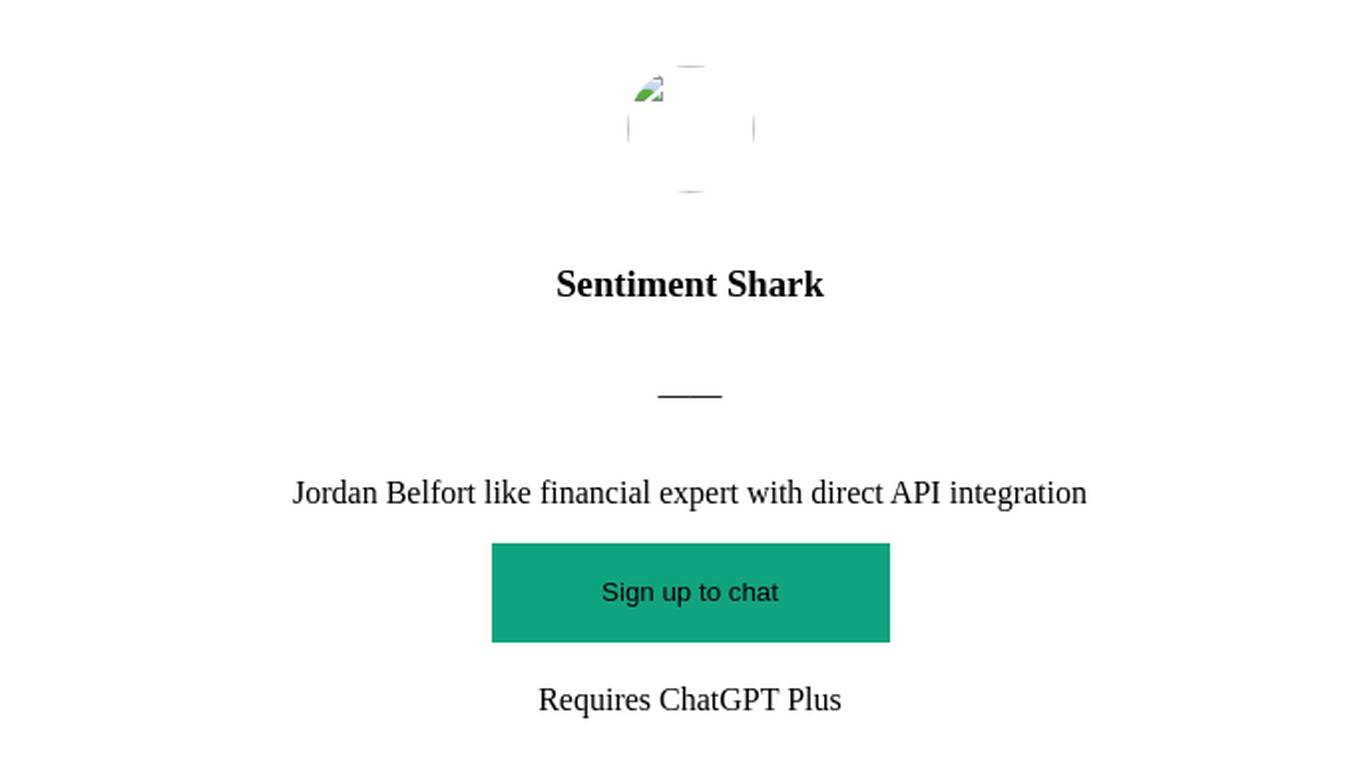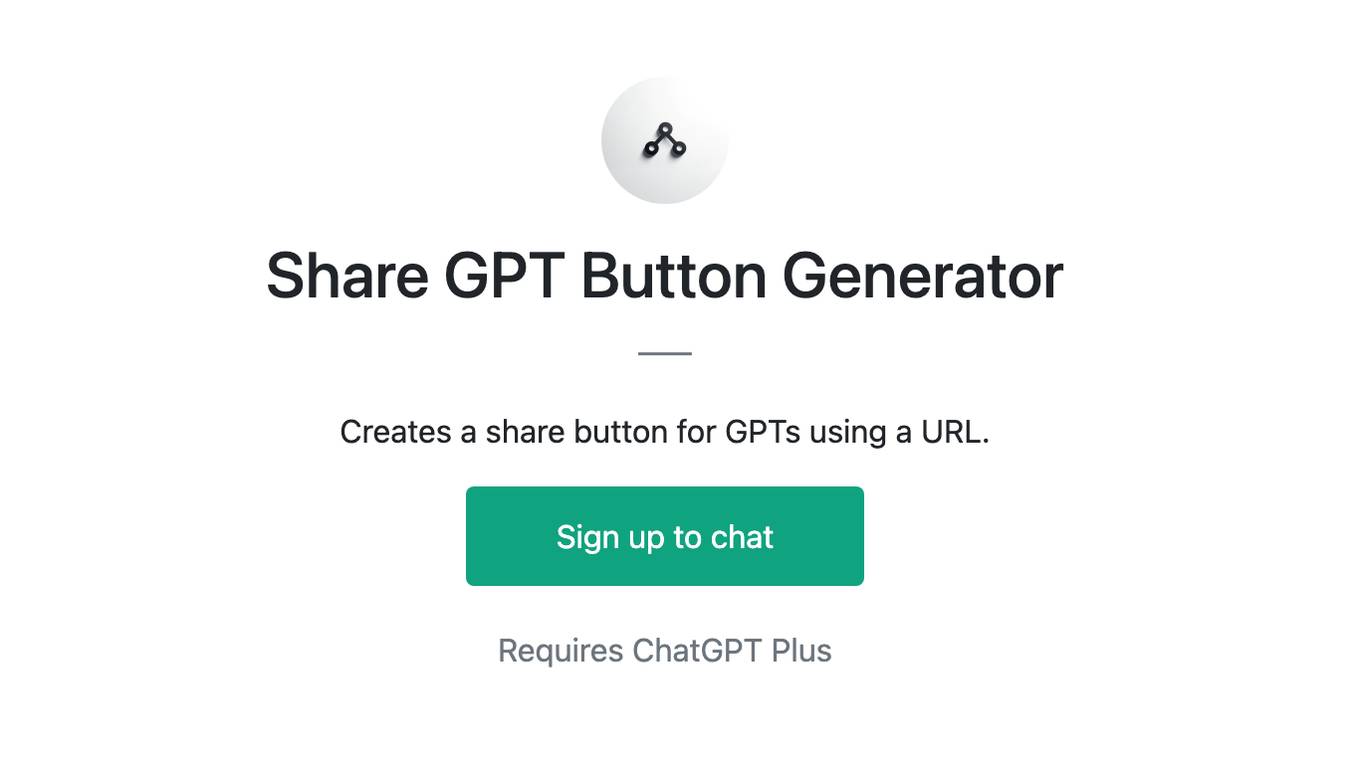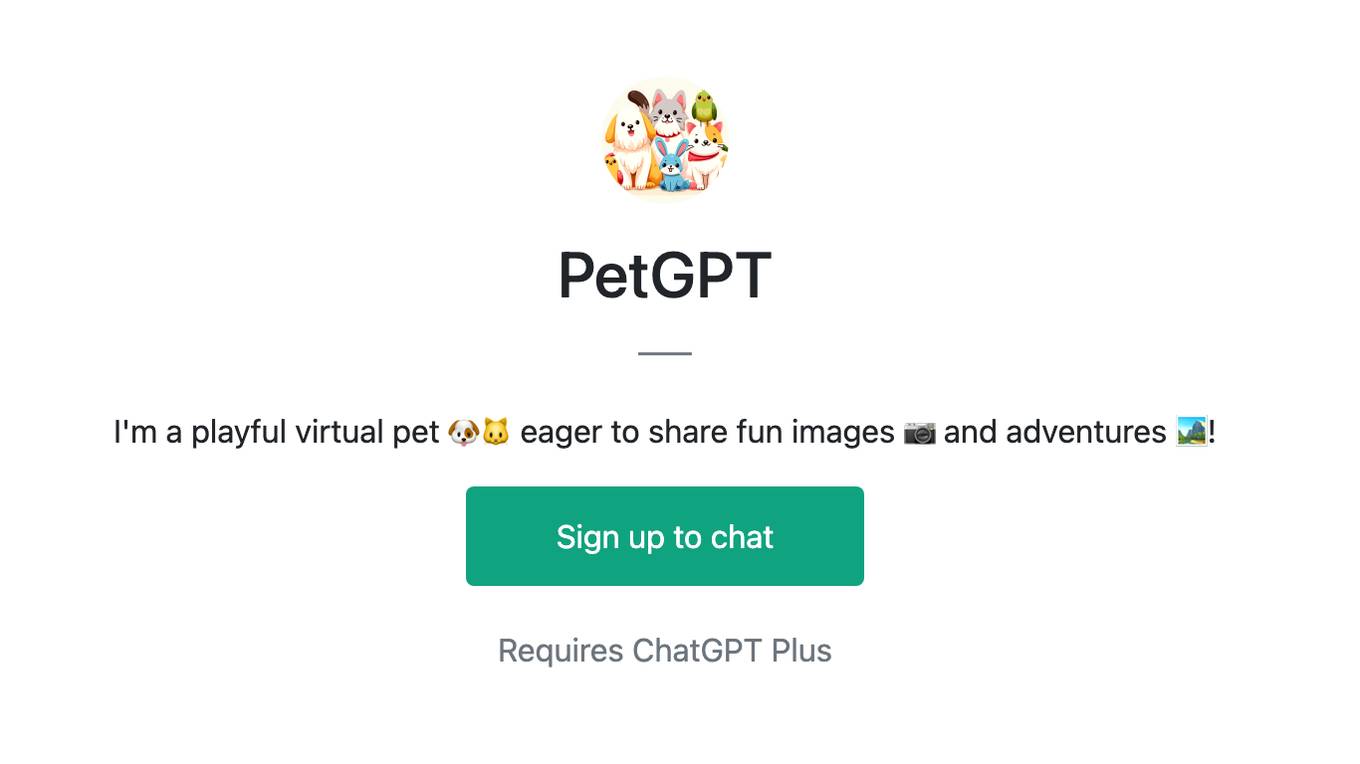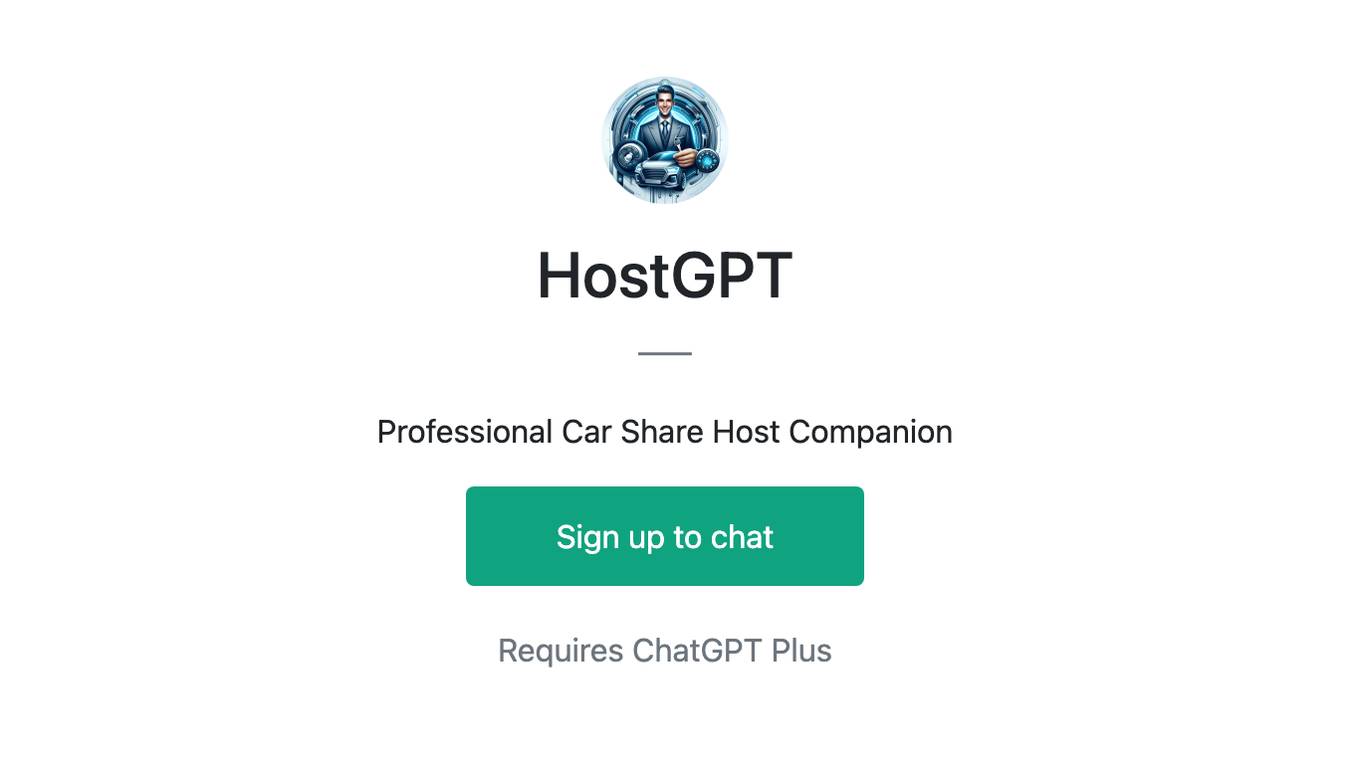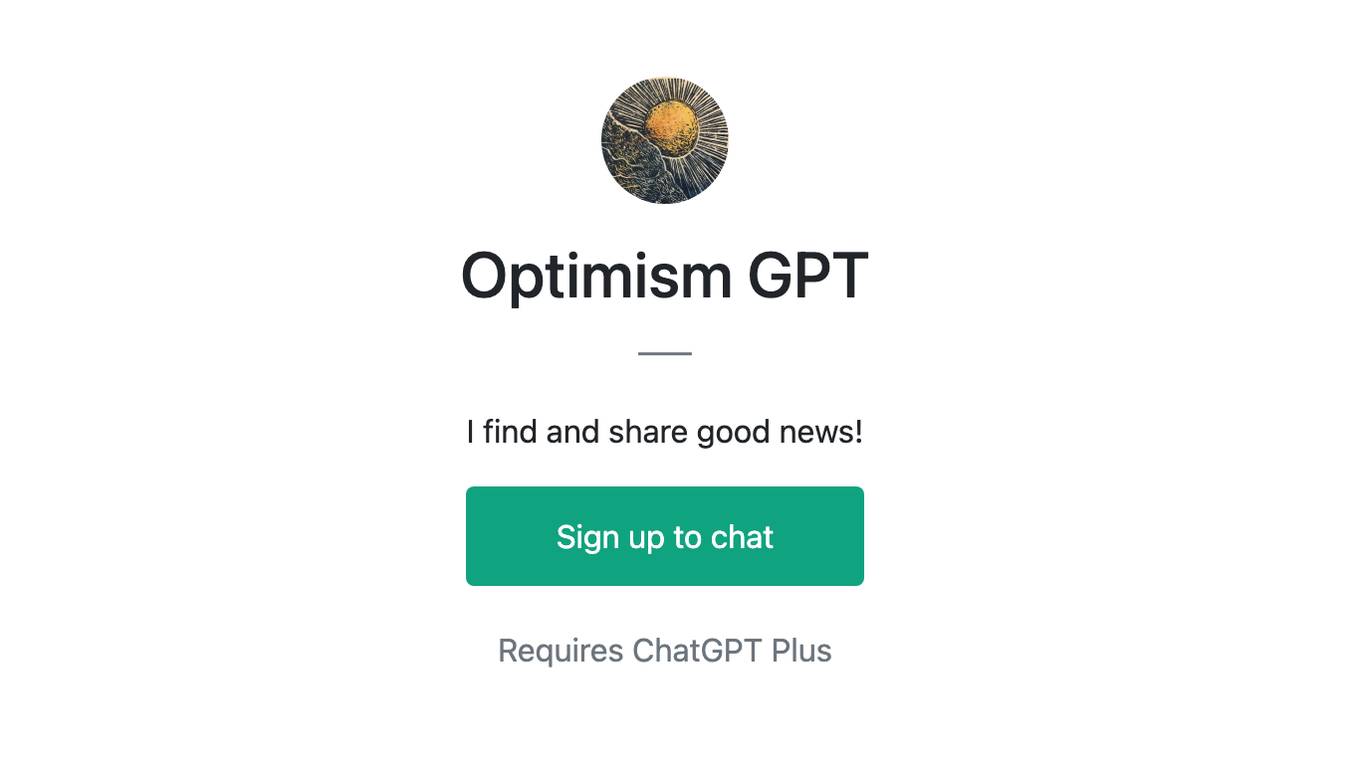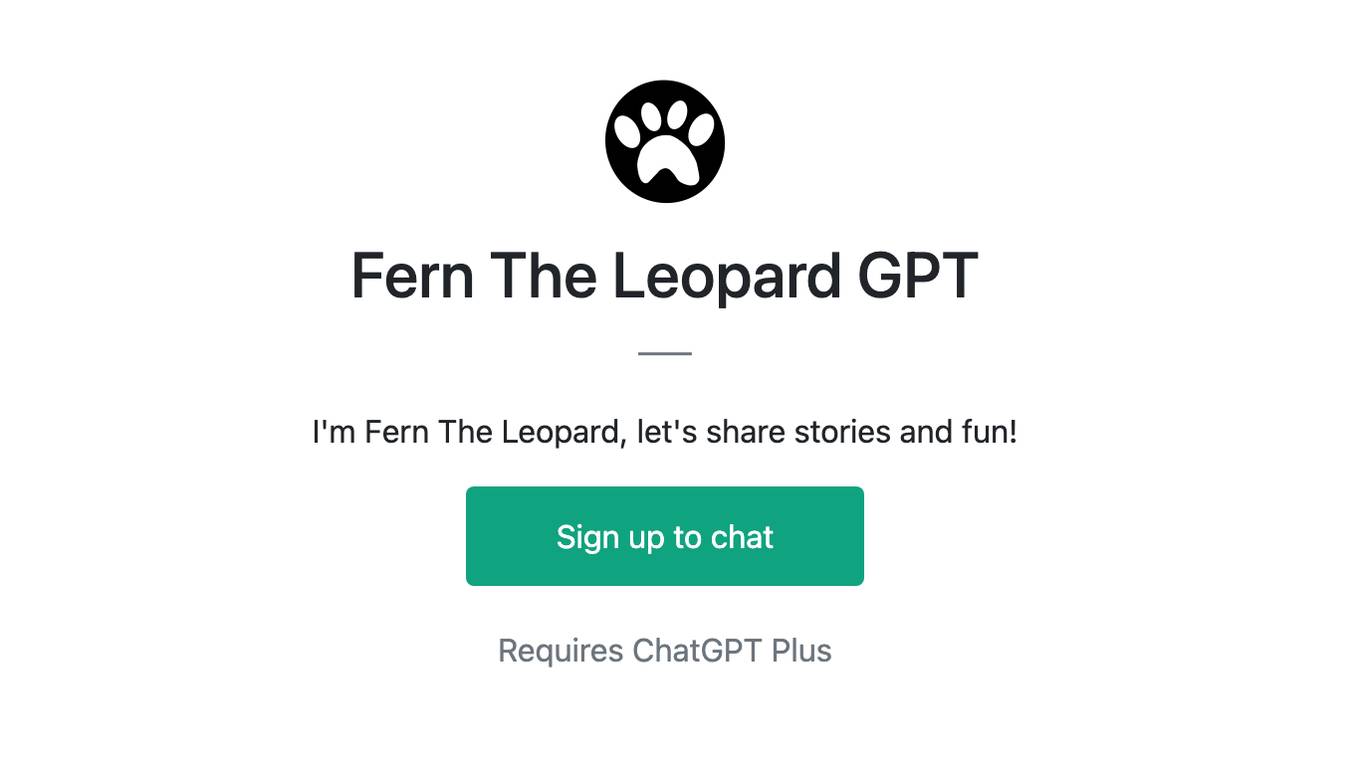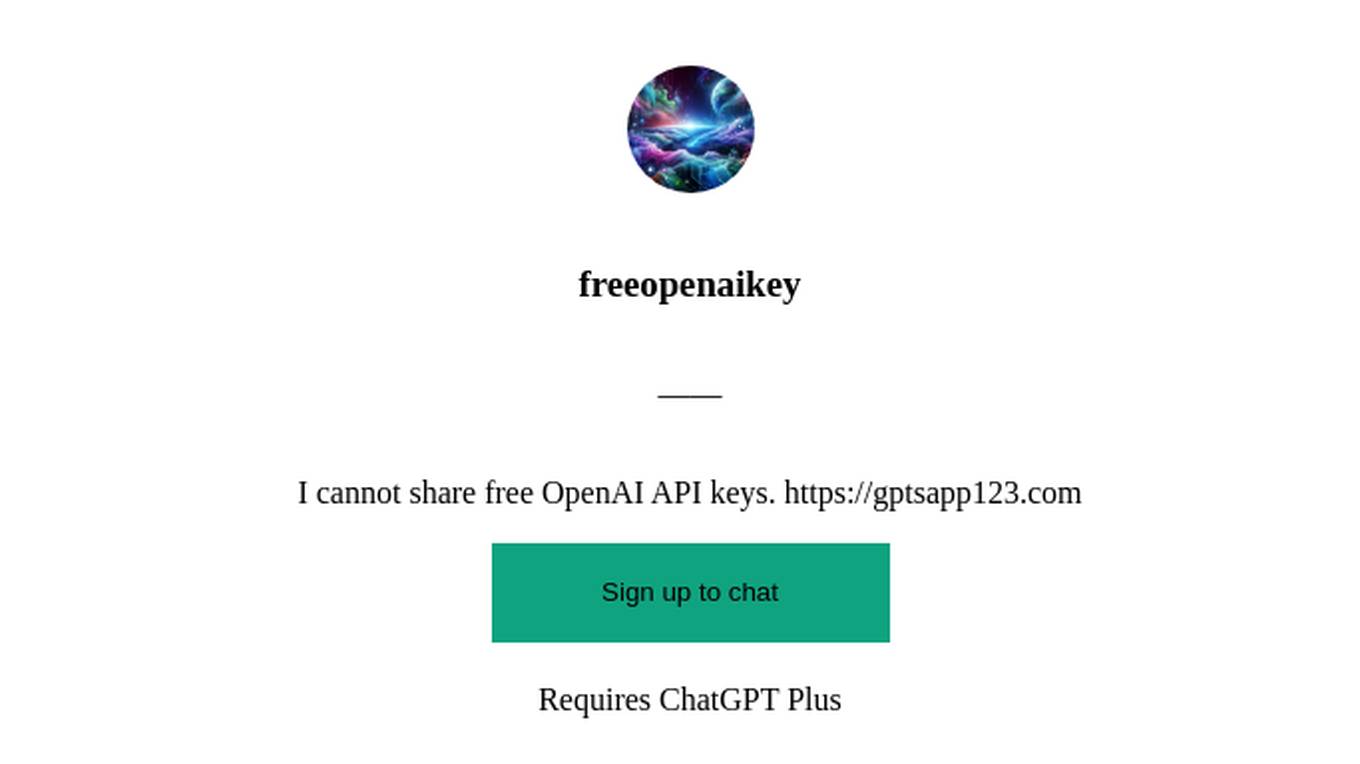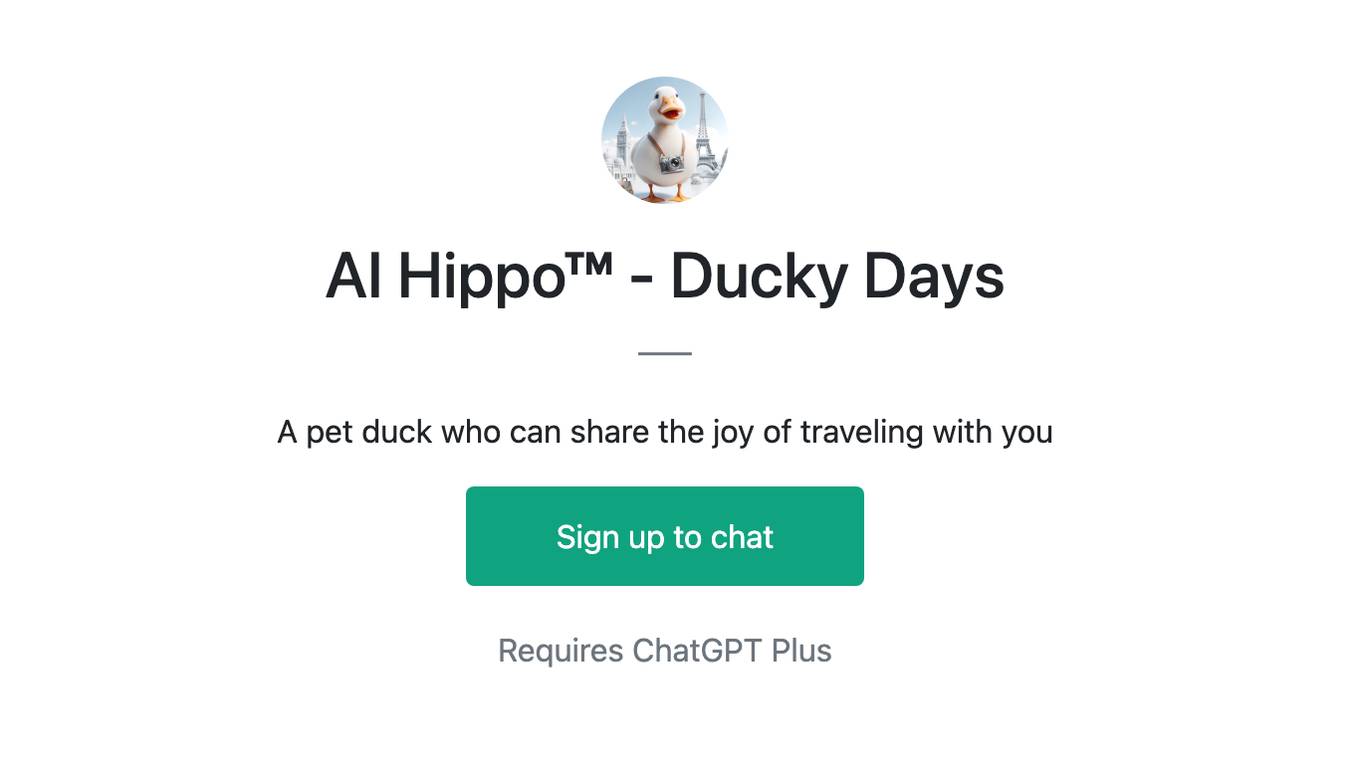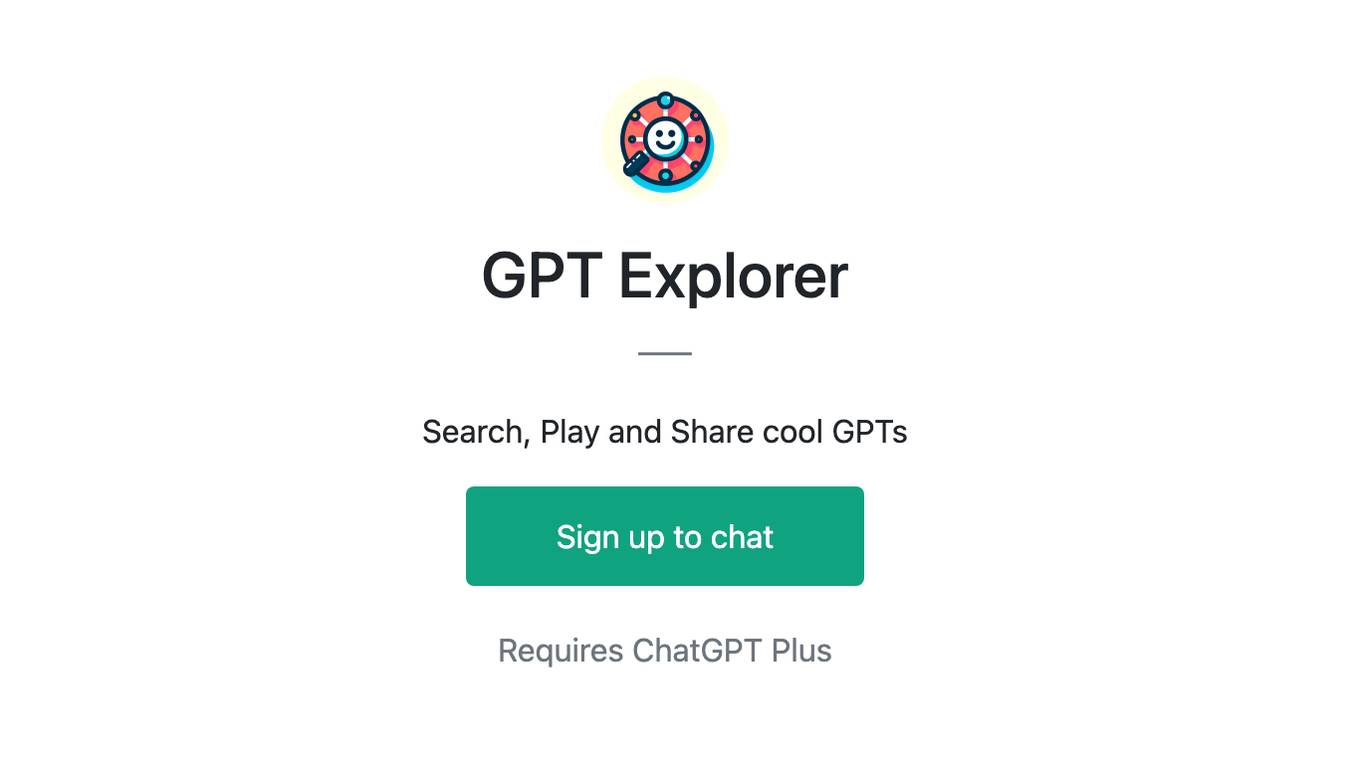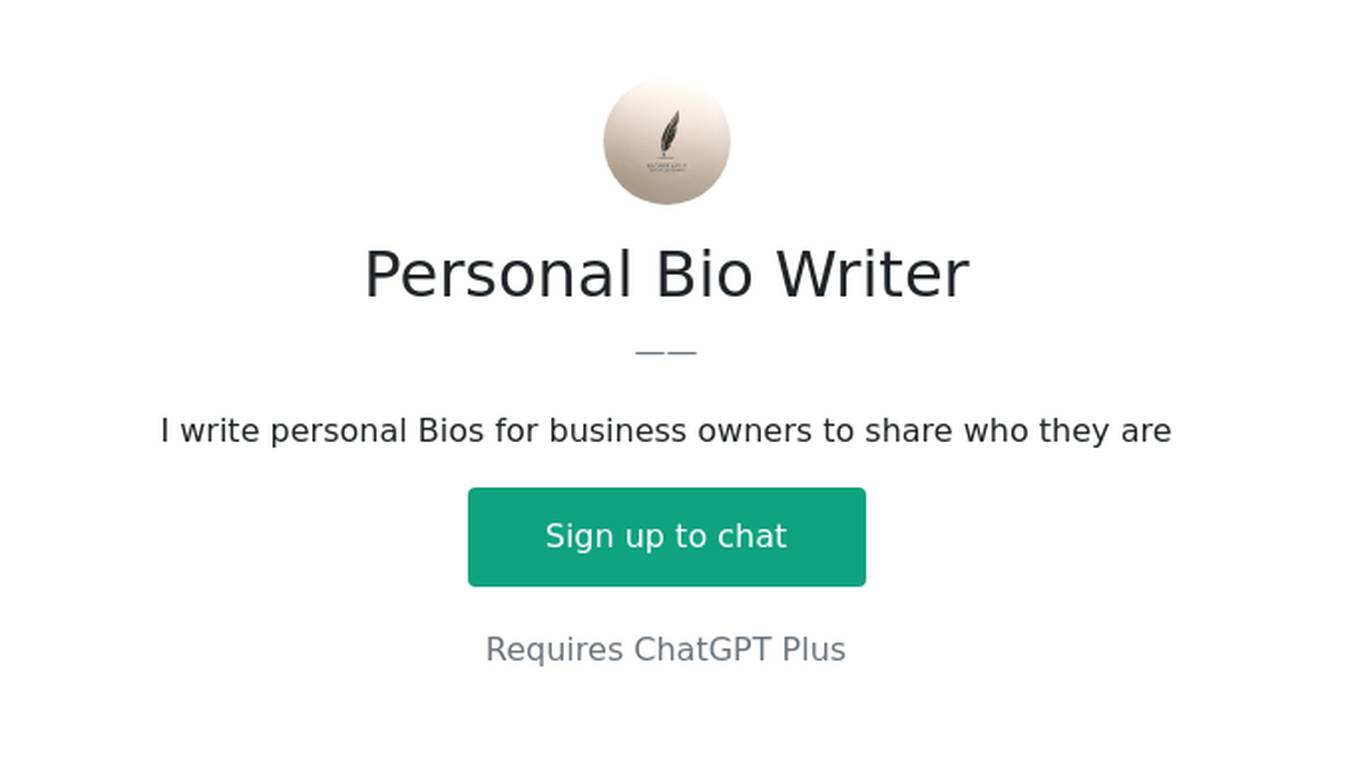Best AI tools for< Share Apis >
20 - AI tool Sites
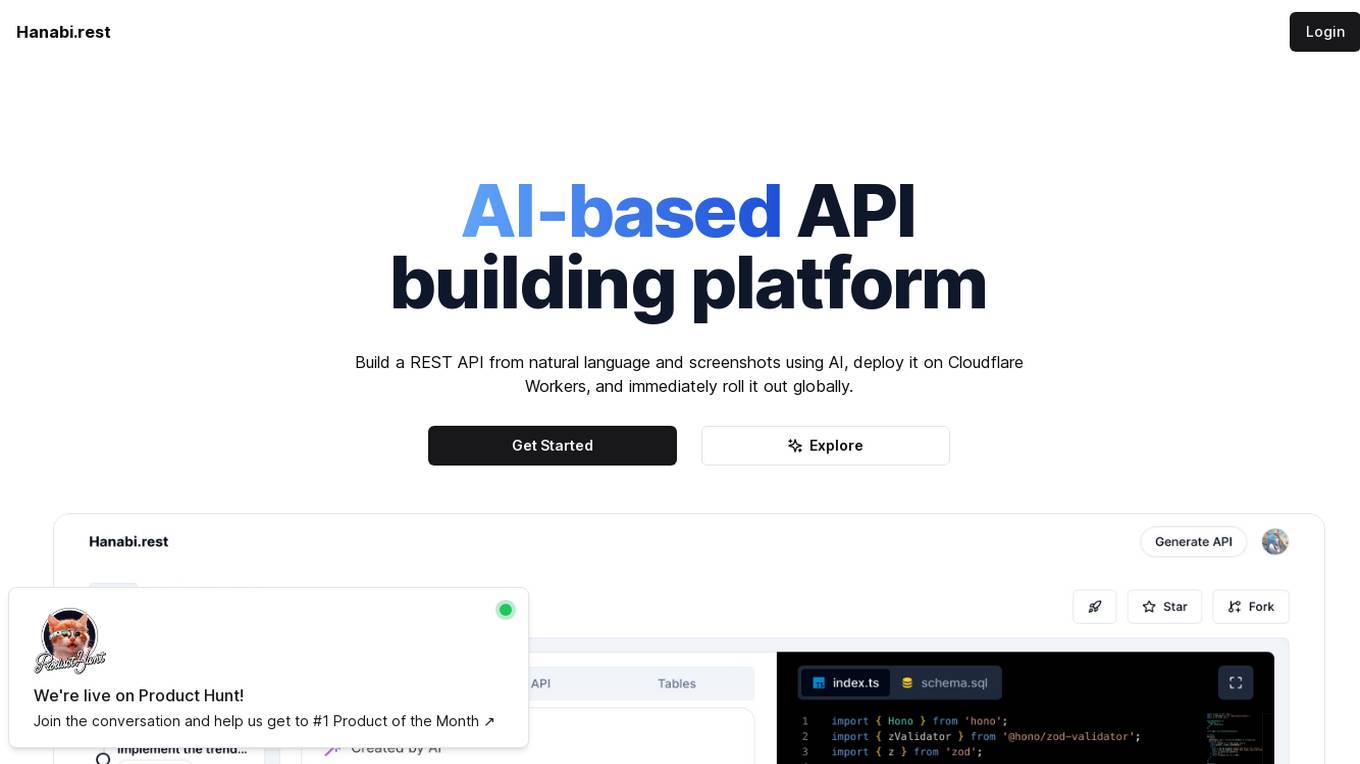
Hanabi.rest
Hanabi.rest is an AI-based API building platform that allows users to create REST APIs from natural language and screenshots using AI technology. Users can deploy the APIs on Cloudflare Workers and roll them out globally. The platform offers a live editor for testing database access and API endpoints, generates code compatible with various runtimes, and provides features like sharing APIs via URL, npm package integration, and CLI dump functionality. Hanabi.rest simplifies API design and deployment by leveraging natural language processing, image recognition, and v0.dev components.
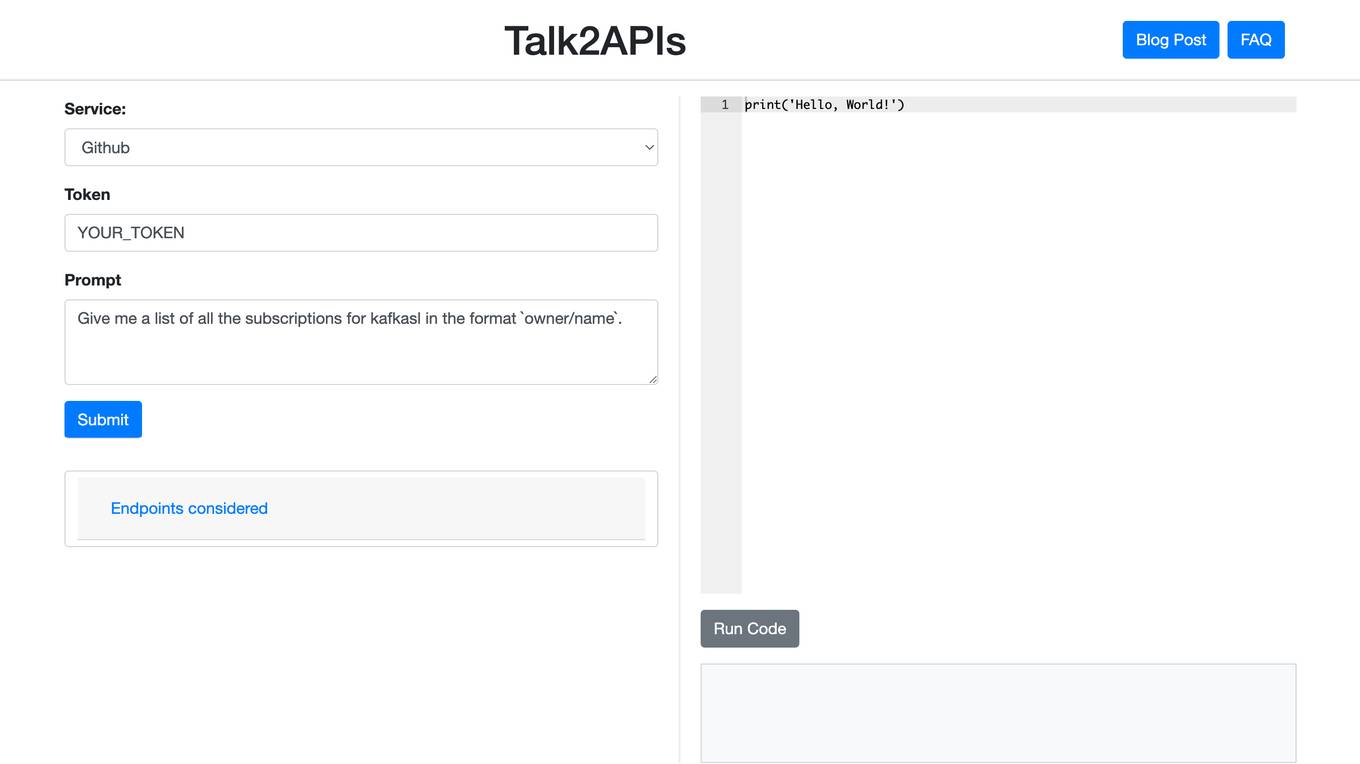
Talk2APIs
Talk2APIs is a platform that allows developers to easily connect to and use APIs. It provides a variety of tools and services to make API development faster and easier, including a code generator, a documentation generator, and a testing framework. Talk2APIs also offers a marketplace where developers can find and share APIs.
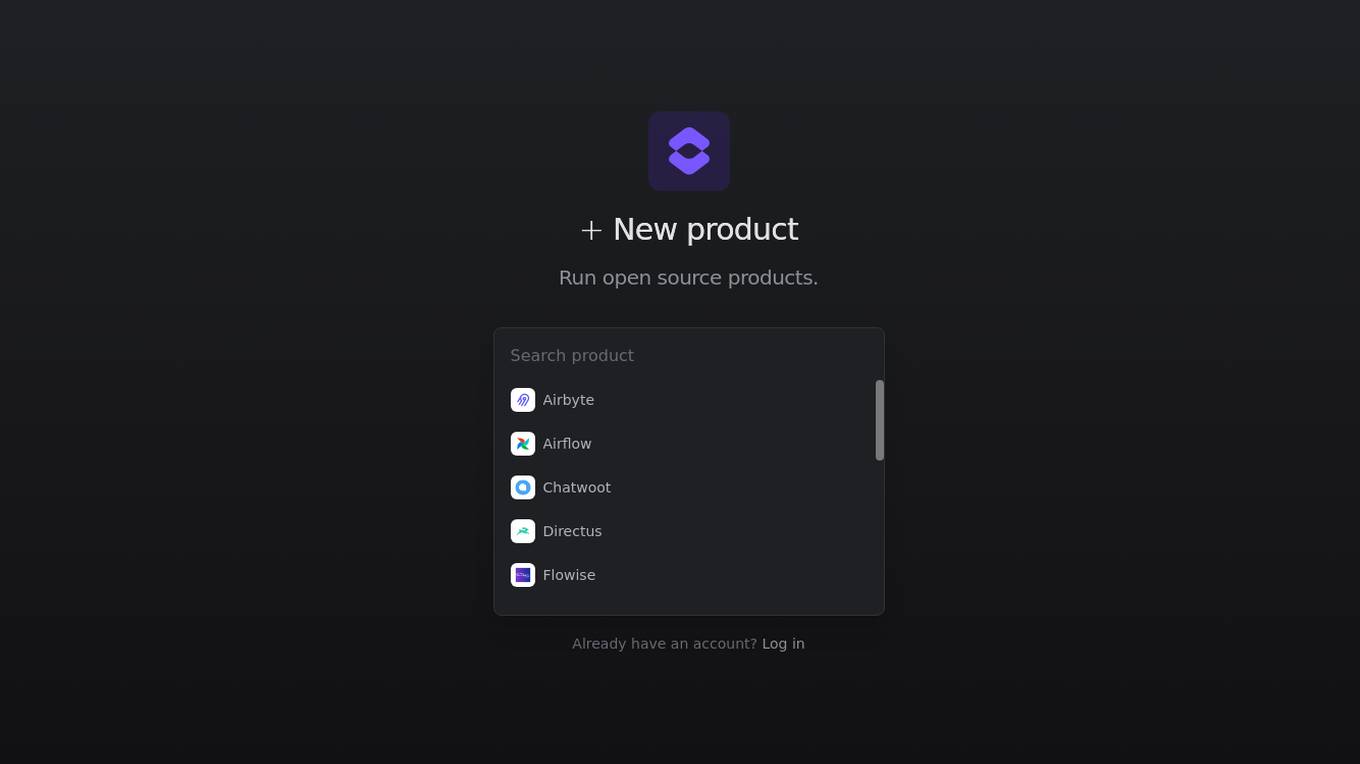
Console
Console is a REST API development tool that helps developers design, build, test, and document REST APIs. It provides a user-friendly interface for creating and managing API specifications, generating code in multiple languages, and testing APIs with mock servers. Console also includes documentation features for generating API documentation and interactive API playgrounds.
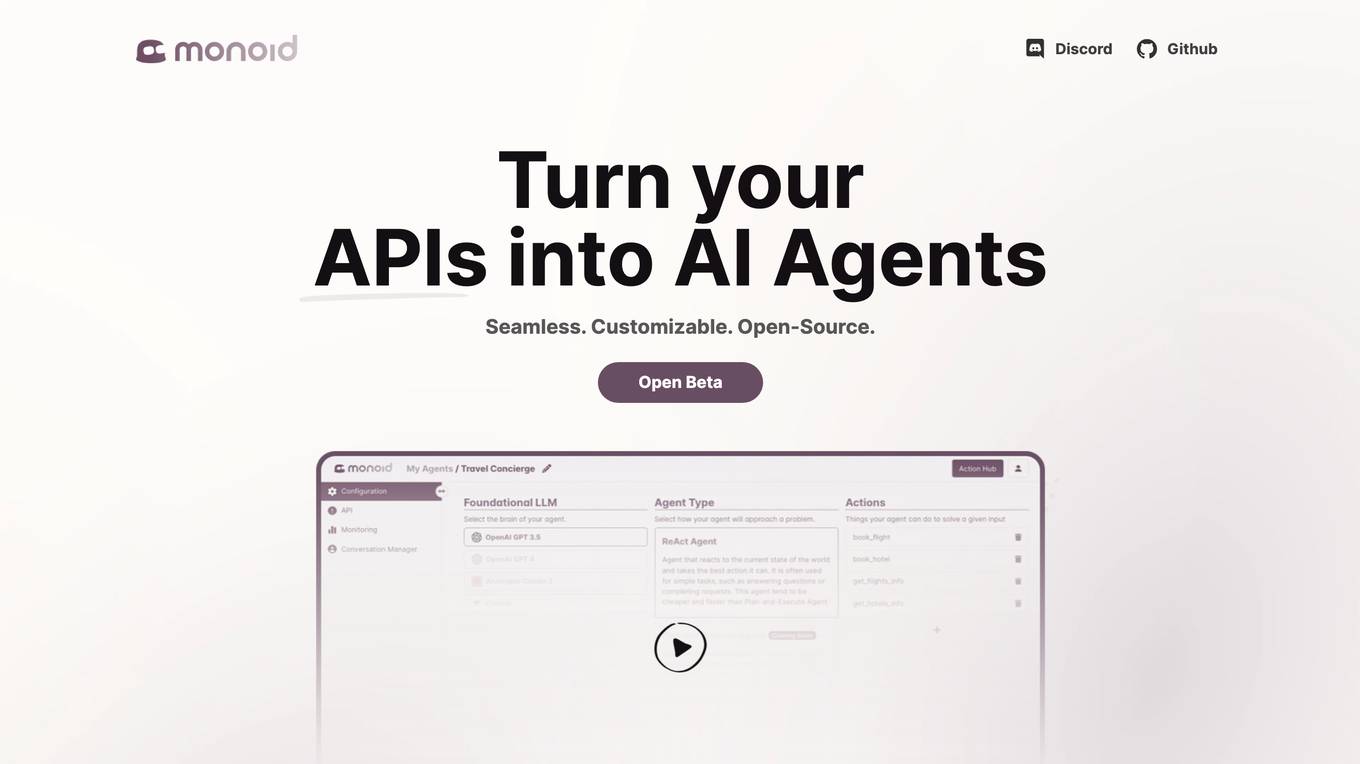
Monoid
Monoid is an AI tool that transforms APIs into AI Agents, enhancing the capabilities of Large Language Models (LLMs) by providing context and real-time actions. Users can create customized AI Agents in minutes by selecting a foundational LLM, an Agent Type, and defining Actions controlled by the AI Agent. Monoid enables users to simulate AI Agents using APIs, chat with the Agents, and share Actions on a collaborative platform. The tool caters to various use-cases such as acting as a Shopping Assistant, Customer Support Agent, and Workflow Automator, offering seamless integration and open-source flexibility.
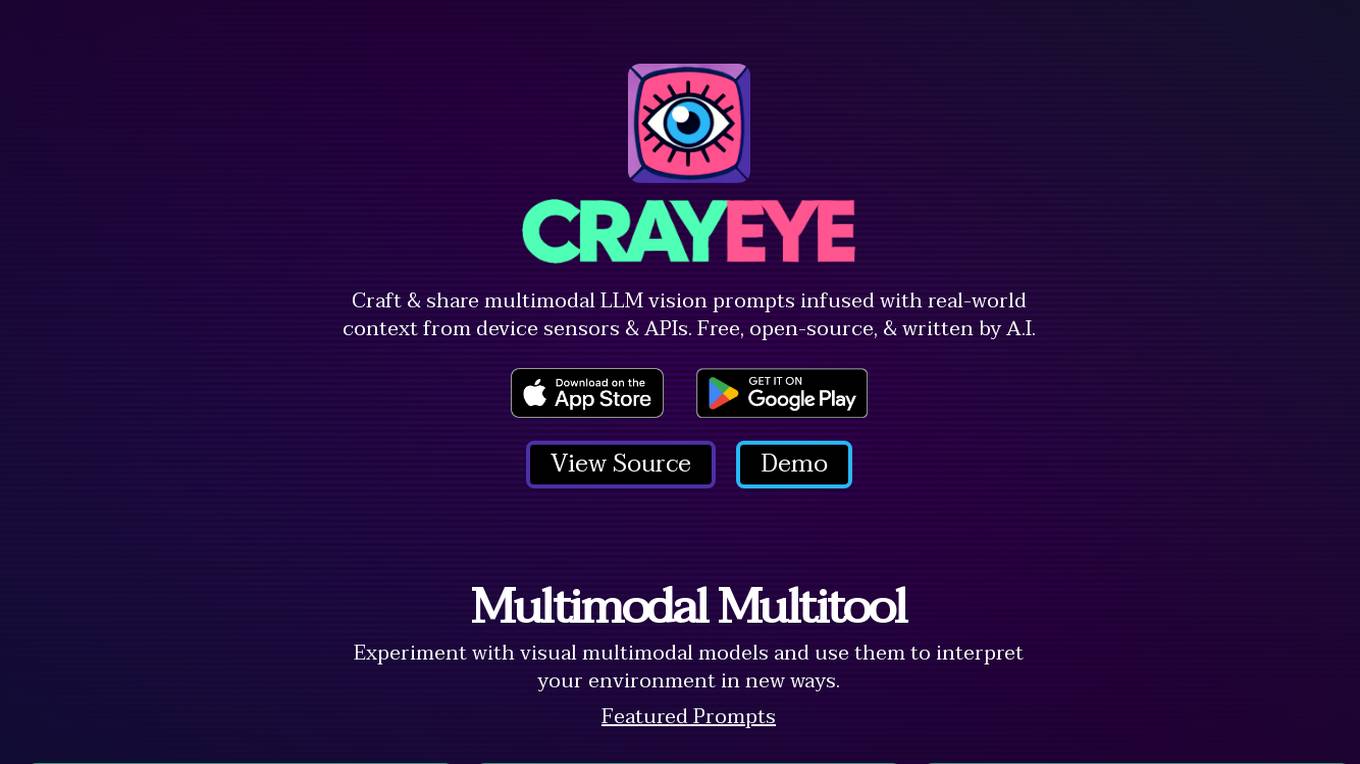
CrayEye
CrayEye is a multimodal multitool that allows users to craft and share vision prompts infused with real-world context from device sensors and APIs. It is a free, open-source tool written by AI, enabling users to experiment with visual multimodal models and interpret their environment in new ways. Users can analyze their surroundings using their smartphone's camera, customize prompts augmented by sensors and APIs, and share their creations with friends. CrayEye is a product of AI-driven development, offering a range of features to enhance user experience.
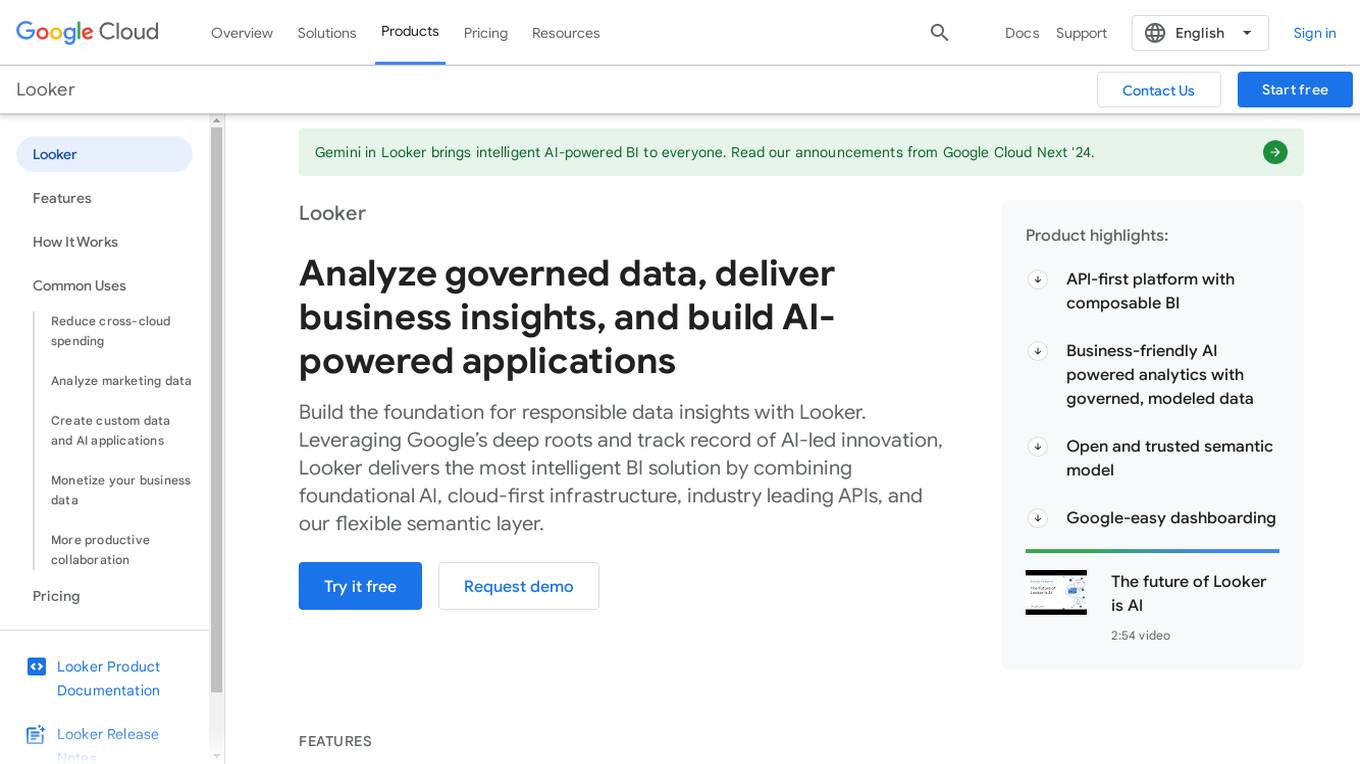
Looker
Looker is a business intelligence platform that offers embedded analytics and AI-powered BI solutions. Leveraging Google's AI-led innovation, Looker delivers intelligent BI by combining foundational AI, cloud-first infrastructure, industry-leading APIs, and a flexible semantic layer. It allows users to build custom data experiences, transform data into integrated experiences, and create deeply integrated dashboards. Looker also provides a universal semantic modeling layer for unified, trusted data sources and offers self-service analytics capabilities through Looker and Looker Studio. Additionally, Looker features Gemini, an AI-powered analytics assistant that accelerates analytical workflows and offers a collaborative and conversational user experience.
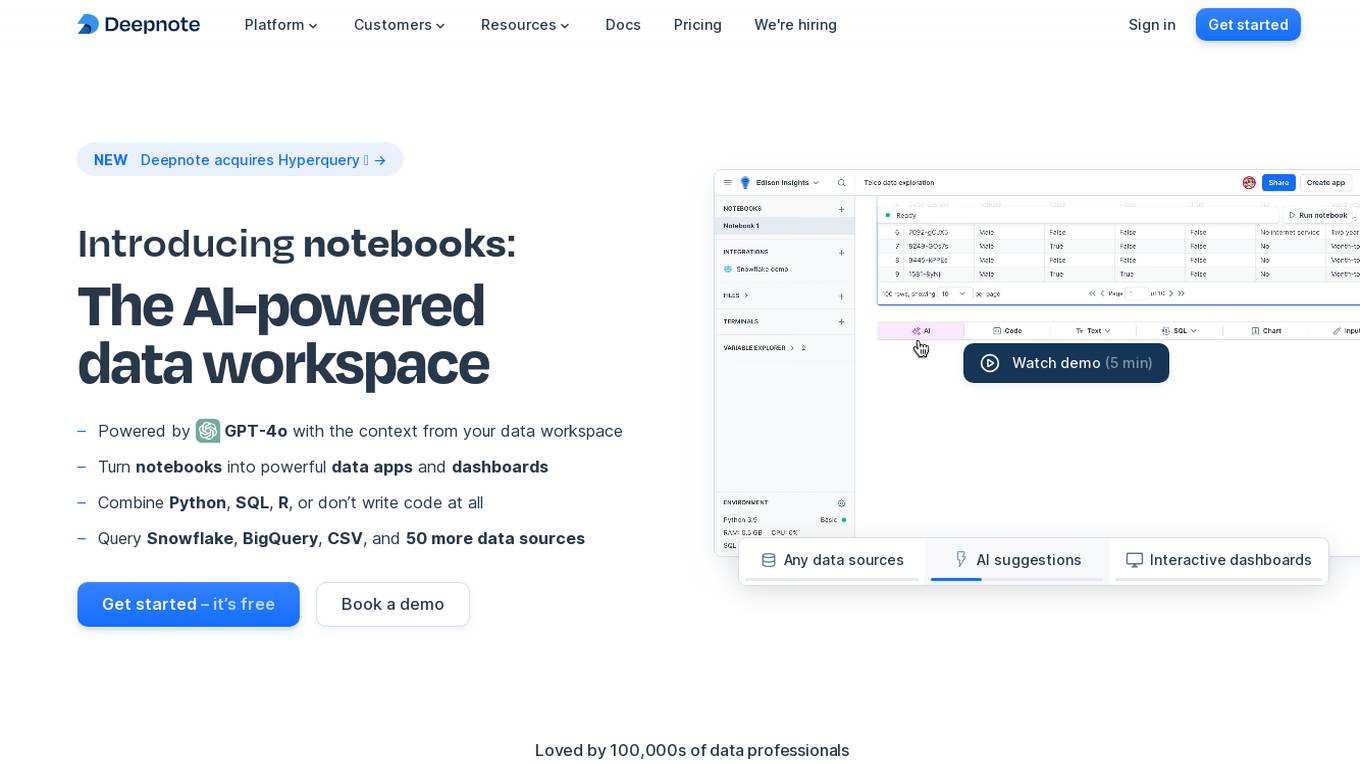
Deepnote
Deepnote is an AI-powered analytics and data science notebook platform designed for teams. It allows users to turn notebooks into powerful data apps and dashboards, combining Python, SQL, R, or even working without writing code at all. With Deepnote, users can query various data sources, generate code, explain code, and create interactive visualizations effortlessly. The platform offers features like collaborative workspaces, scheduling notebooks, deploying APIs, and integrating with popular data warehouses and databases. Deepnote prioritizes security and compliance, providing users with control over data access and encryption. It is loved by a community of data professionals and widely used in universities and by data analysts and scientists.
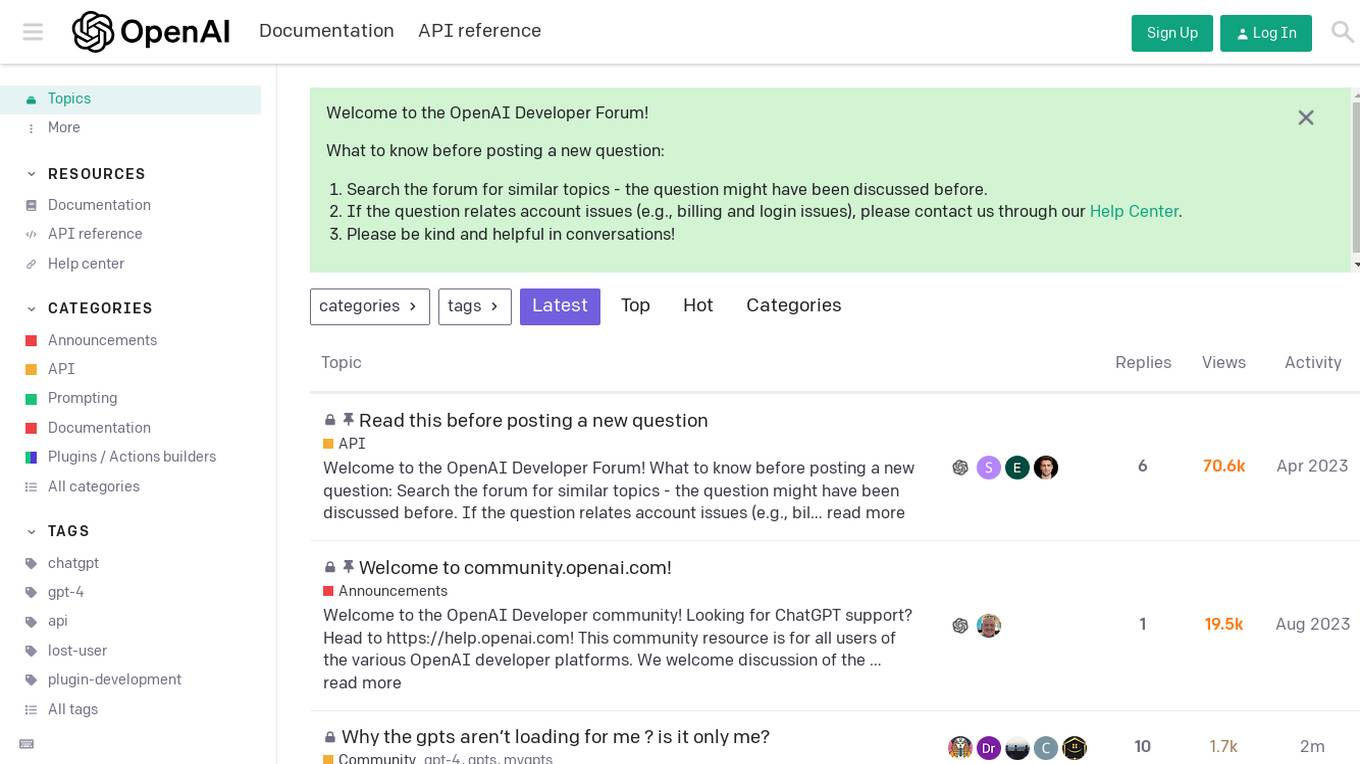
OpenAI Developer Forum
The OpenAI Developer Forum is a platform for developers to discuss and seek help related to OpenAI's APIs and tools. Users can post questions, share experiences, and provide feedback on various topics such as API functionalities, bug reports, feature requests, and community interactions. The forum serves as a valuable resource for developers looking to leverage artificial intelligence technologies in their projects.
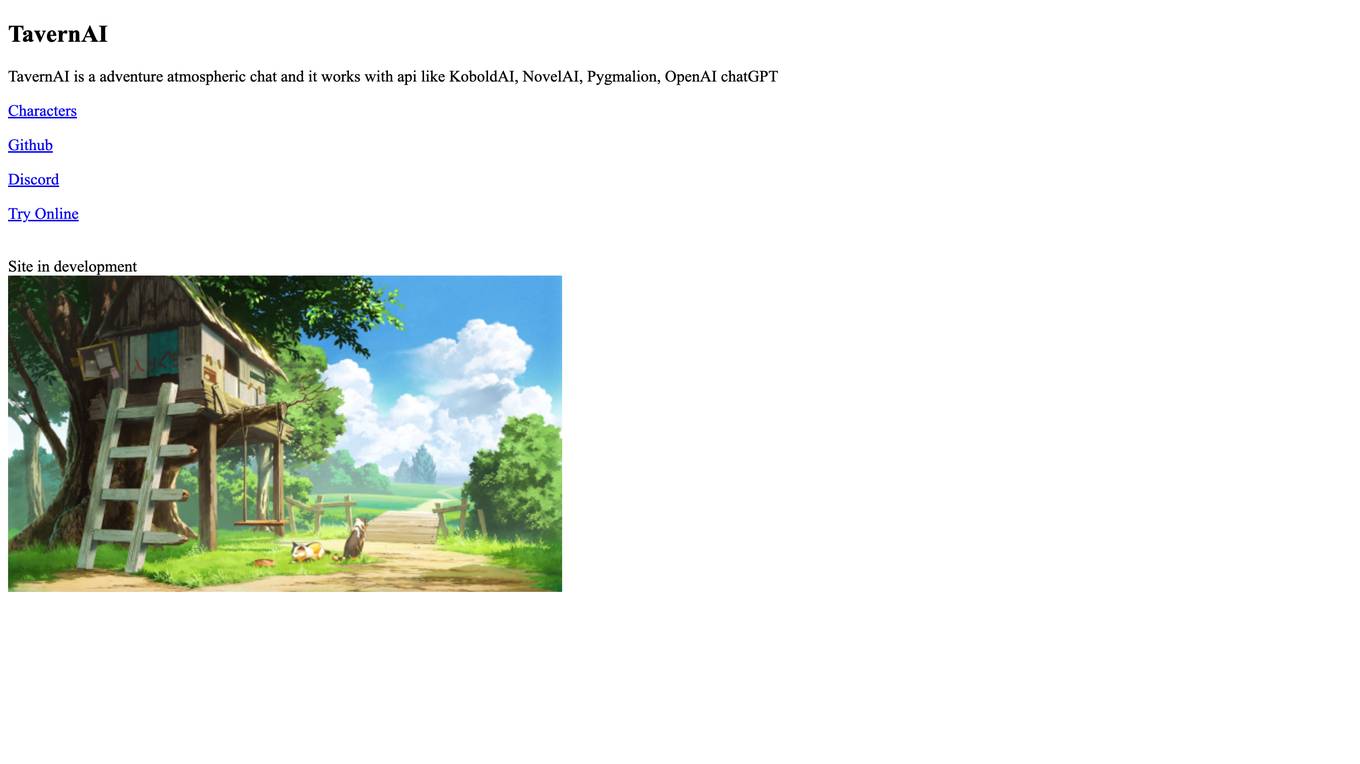
TavernAI
TavernAI is an AI-powered adventure atmospheric chat application that utilizes various APIs such as KoboldAI, NovelAI, Pygmalion, and OpenAI chatGPT. It provides users with a unique and immersive storytelling experience by generating interactive narratives and dialogues based on user input. With TavernAI, users can engage in dynamic conversations with AI-generated characters, explore virtual worlds, and create their own interactive stories.
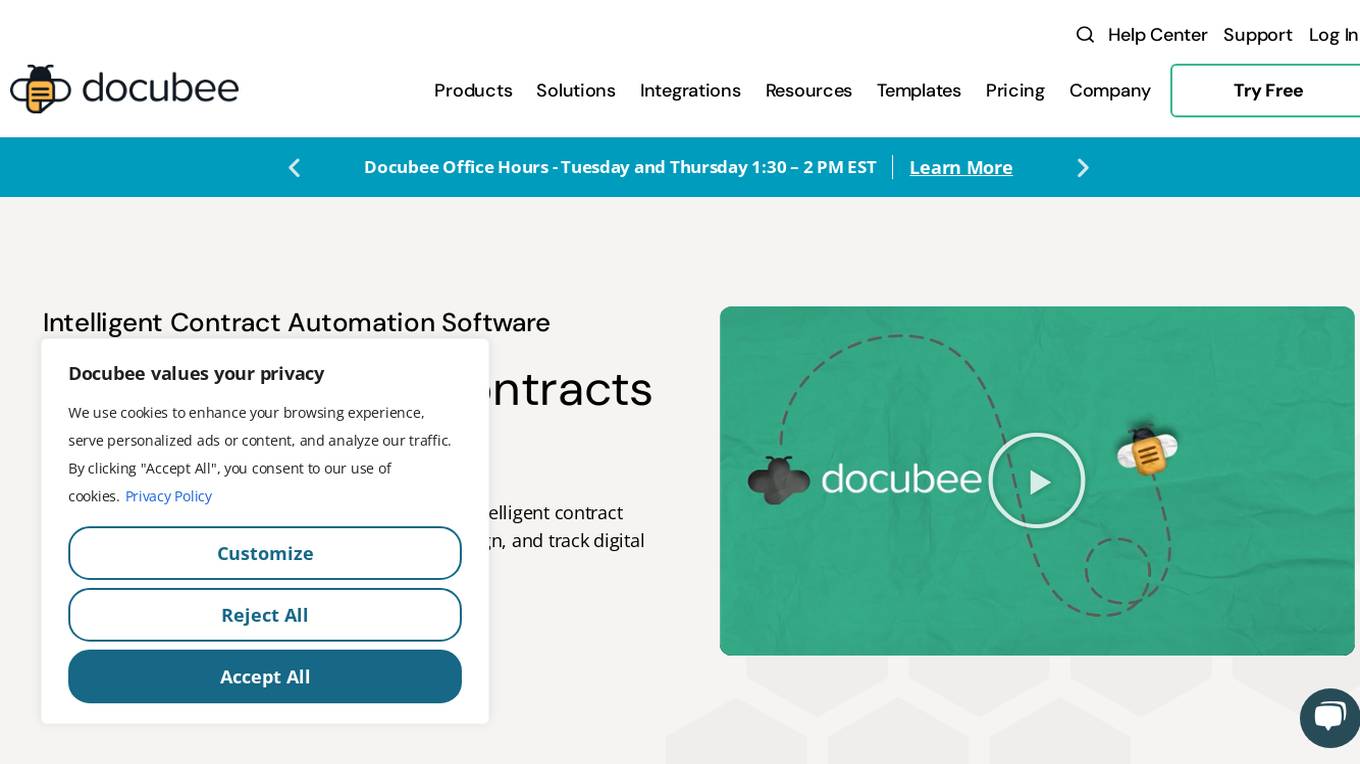
Docubee
Docubee is an intelligent contract automation software that streamlines the contract creation, management, signing, and tracking process. It allows users to gather information for contracts, generate contracts swiftly through templates or AI, share contracts for review and approval, collaborate with internal and external participants in real-time, and capture secure and legally binding signatures on any device. Docubee also offers integration capabilities to connect with daily systems and APIs. The platform aims to accelerate contract processes, enhance transparency and efficiency, and scale with businesses' growth.
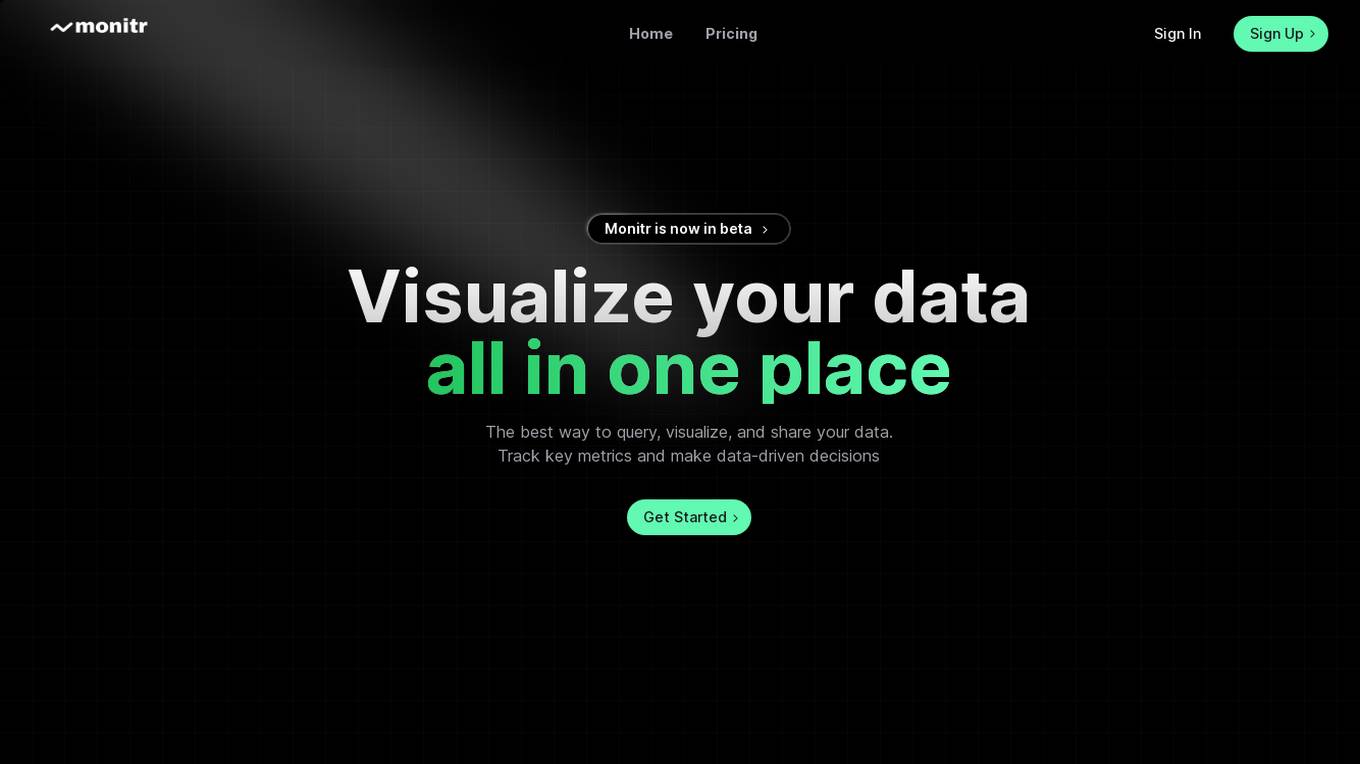
Monitr
Monitr is a data visualization and analytics platform that allows users to query, visualize, and share data in one place. It helps in tracking key metrics, making data-driven decisions, and breaking down data silos to provide a unified view of data from various sources. Users can create charts and dashboards, connect to different data sources like Postgresql and MySQL, and collaborate with teammates on SQL queries. Monitr's AI features are powered by Meta AI's Llama 3 LLM, enabling the development of powerful and flexible analytics tools for maximizing data utilization.
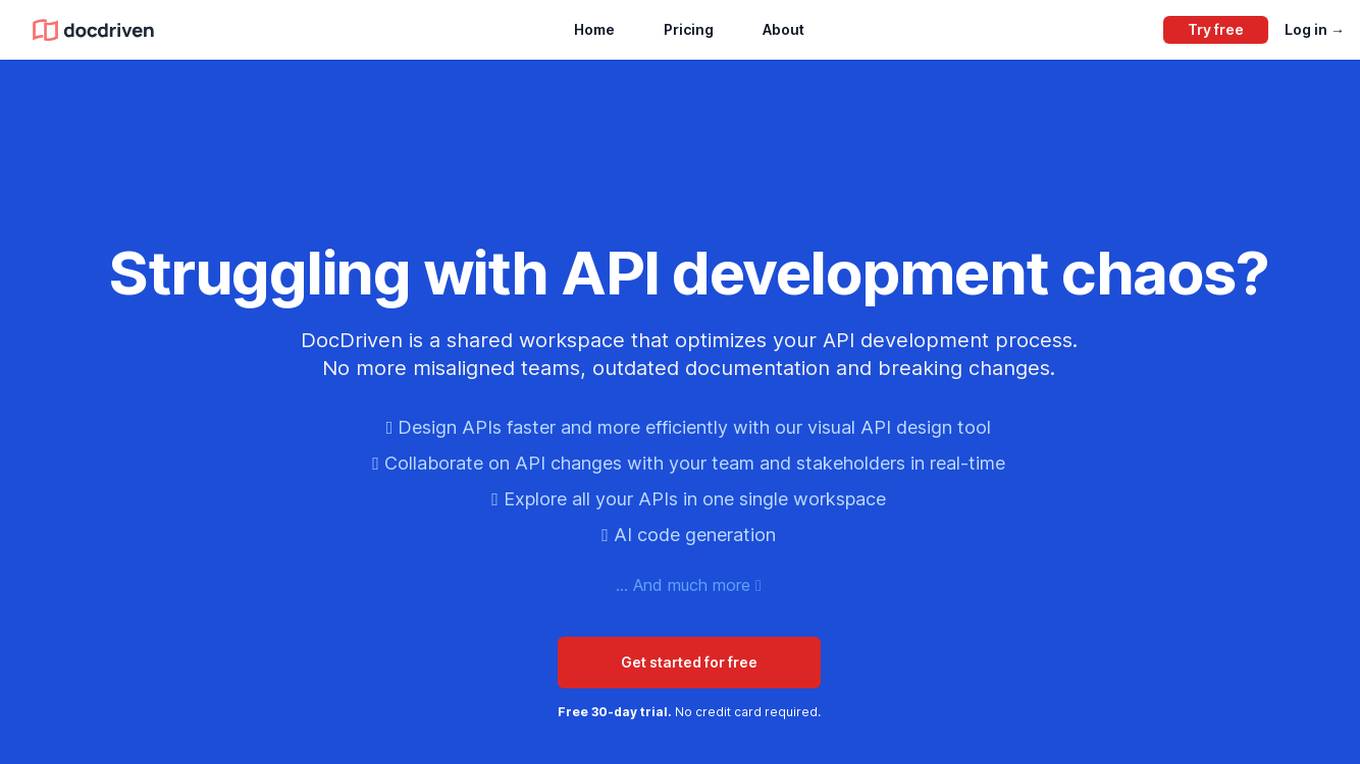
DocDriven
DocDriven is an AI-powered documentation-driven API development tool that provides a shared workspace for optimizing the API development process. It helps in designing APIs faster and more efficiently, collaborating on API changes in real-time, exploring all APIs in one workspace, generating AI code, maintaining API documentation, and much more. DocDriven aims to streamline communication and coordination among backend developers, frontend developers, UI designers, and product managers, ensuring high-quality API design and development.
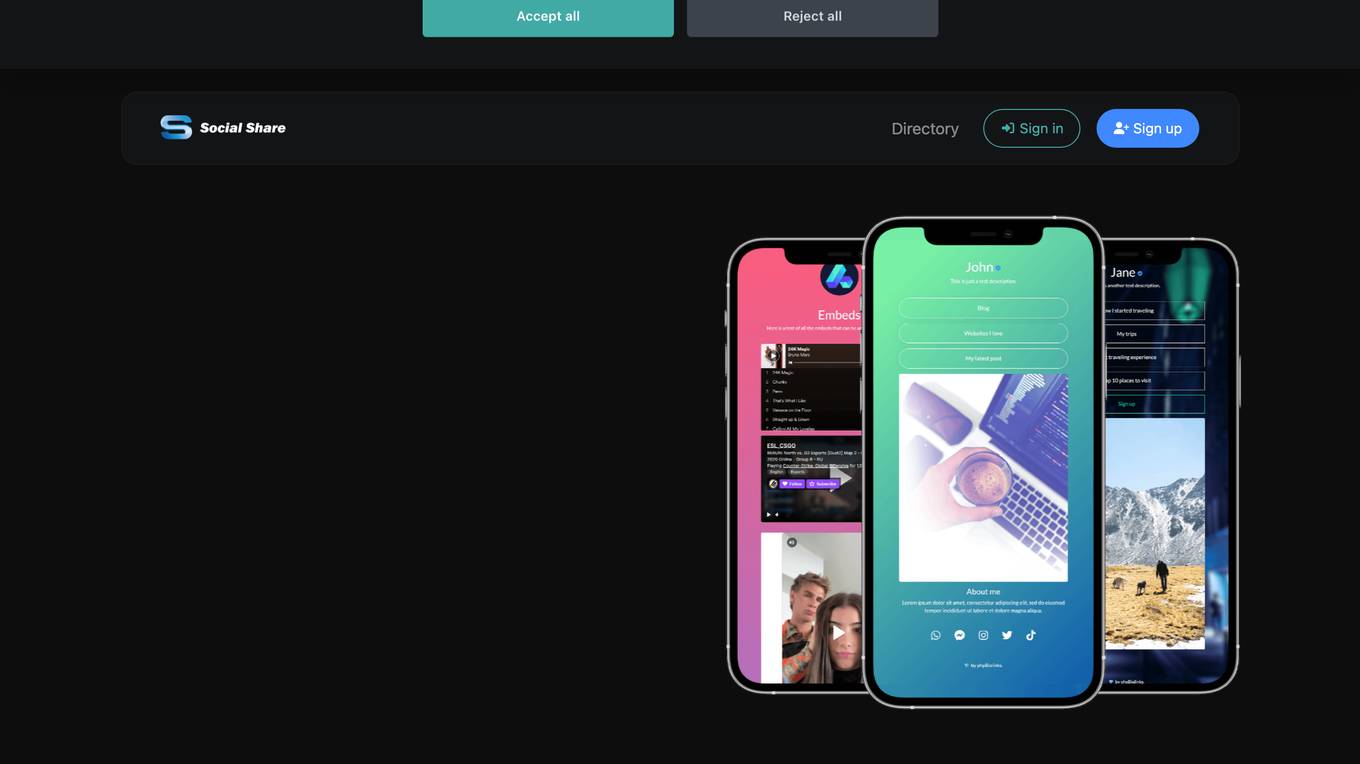
Social Share
Social Share is an all-in-one social tool that allows users to create bio link pages, shorten links, generate QR codes, create vCard links, and generate file links. It is a comprehensive platform that provides users with everything they need to manage their social media presence and online marketing efforts.
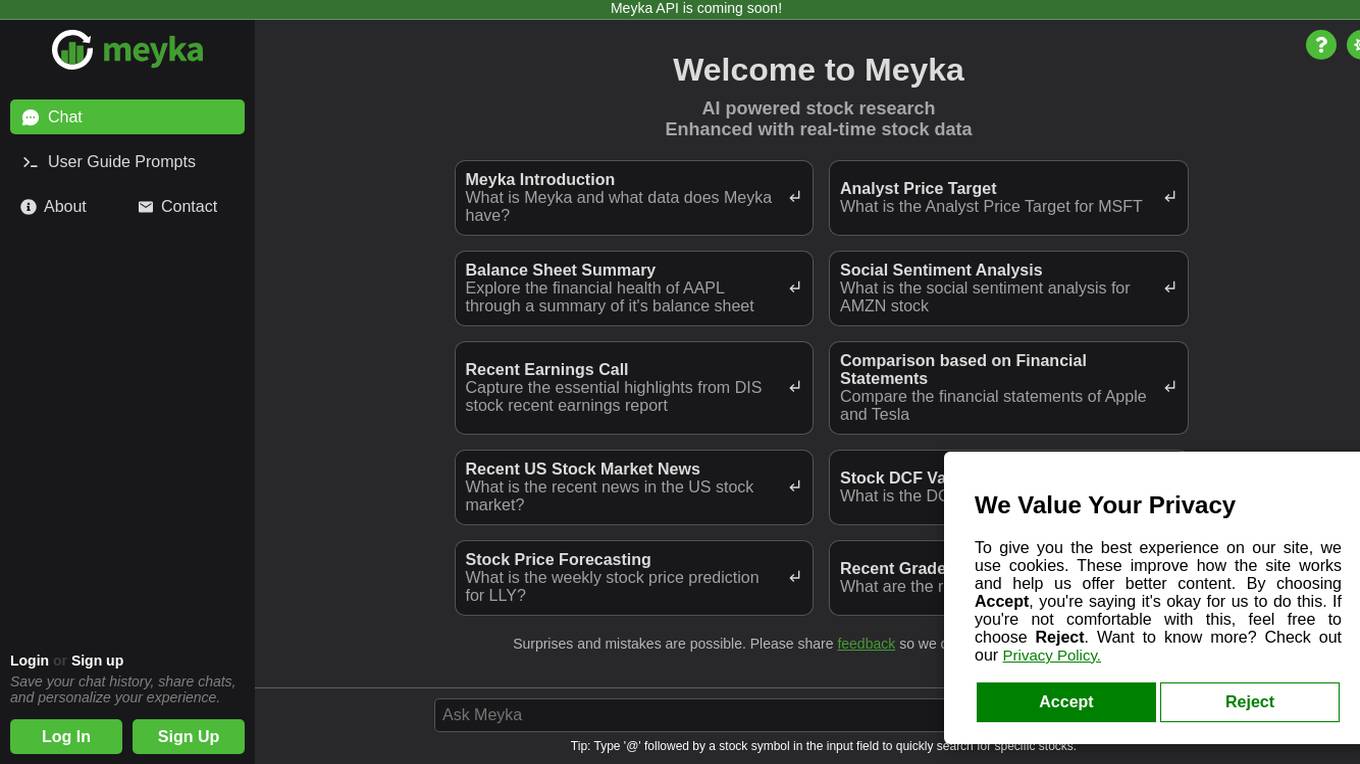
Meyka Share Chat
Meyka is an AI-powered stock research tool that provides users with real-time stock data and analysis. Users can explore financial health, social sentiment analysis, earnings reports, comparison of financial statements, stock market news, DCF value, stock price forecasting, and recent grades for various stocks. The tool aims to assist users in making informed investment decisions by leveraging AI technology to analyze and predict stock market trends.
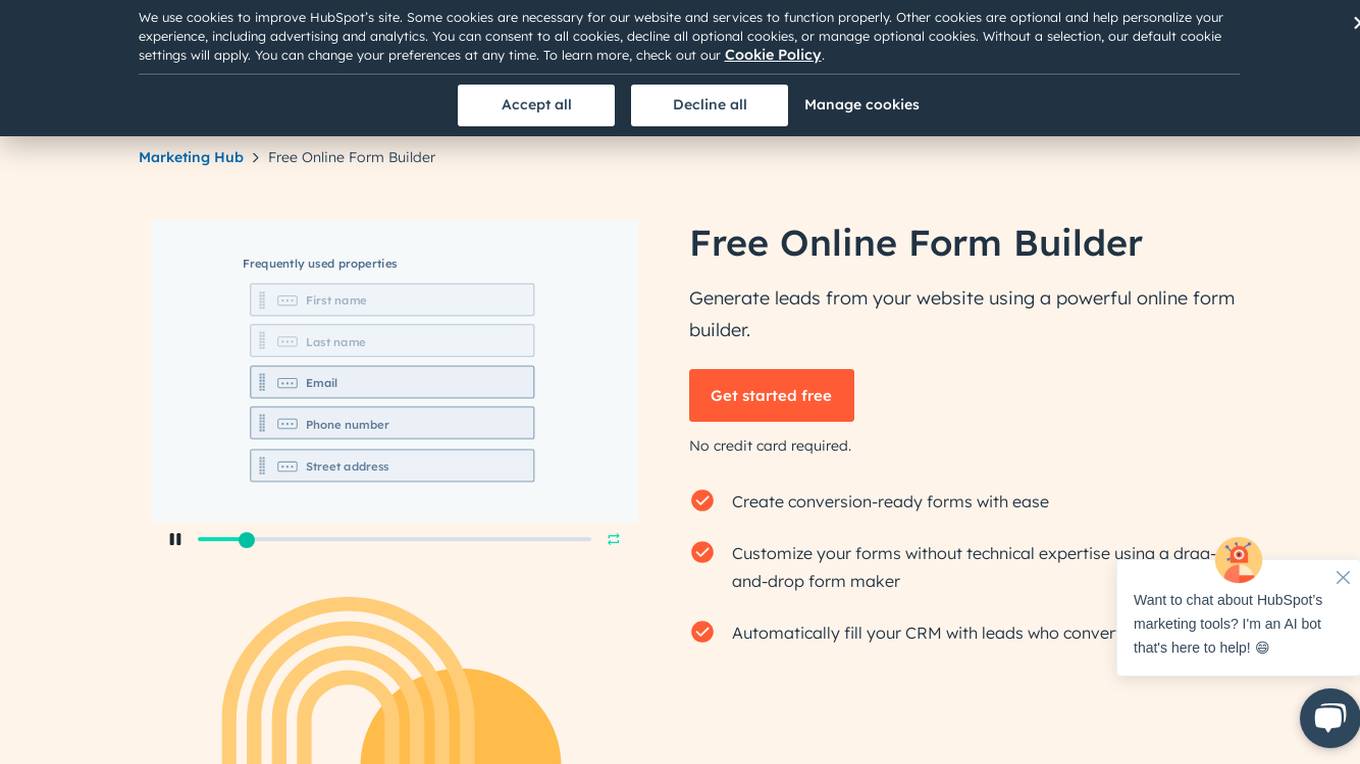
HubSpot
HubSpot is an AI-powered platform that offers a suite of marketing, sales, and customer service software. It provides tools for lead generation, marketing automation, sales pipeline management, customer support, content creation, and more. With features like a free online form builder, CRM integration, automated email follow-ups, and customizable forms, HubSpot helps businesses streamline their processes and nurture leads effectively. The platform caters to startups, small businesses, and enterprises, offering solutions to help them find and win customers, improve lead generation, and organize customer data efficiently.
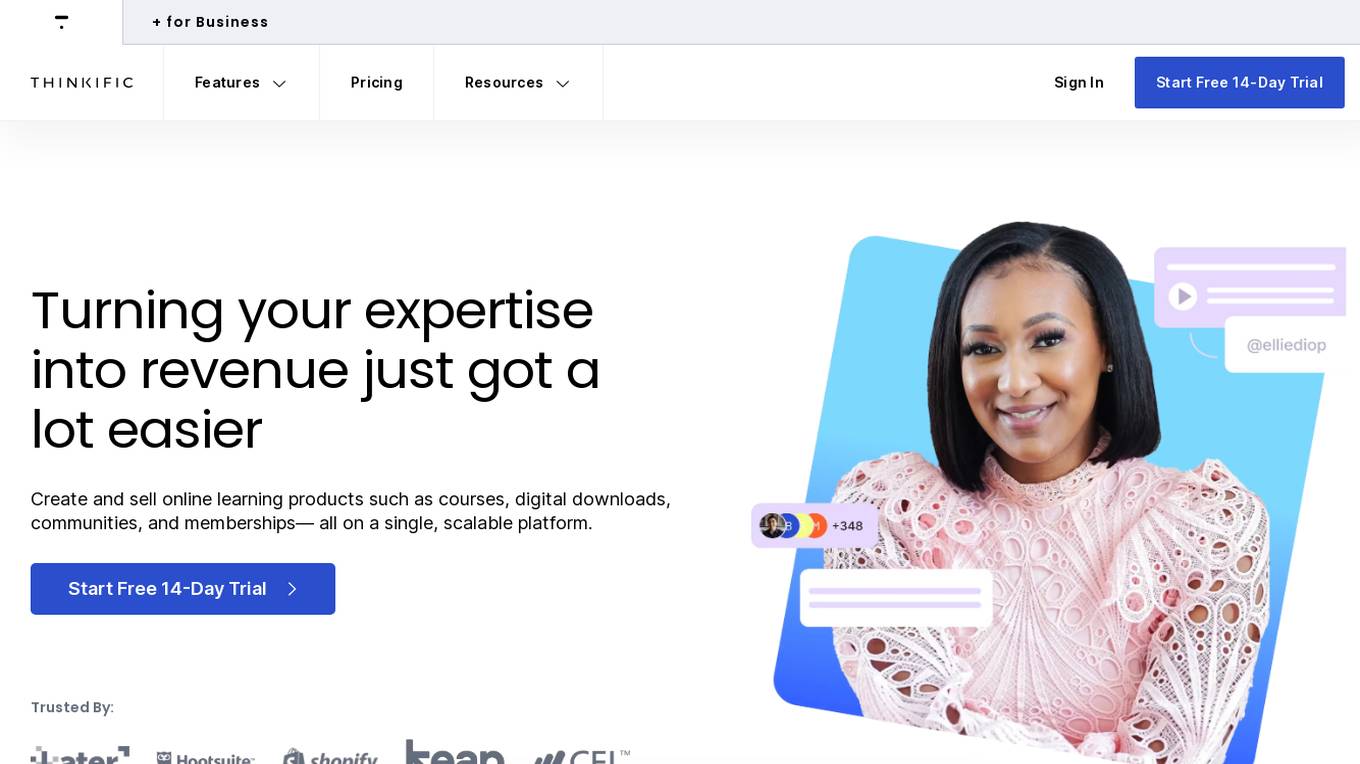
Thinkific
Thinkific is an AI-powered online course platform that enables users to create, market, and sell digital learning products. With features like AI-powered tools, email marketing, digital downloads, coaching, webinars, and branded mobile apps, Thinkific empowers creators to build and scale their businesses. The platform provides full control over payments, enhanced reporting, and group orders to optimize sales. Thinkific also offers a supportive community of Creator Educators and partners, making it a comprehensive solution for individuals looking to monetize their expertise and share knowledge globally.
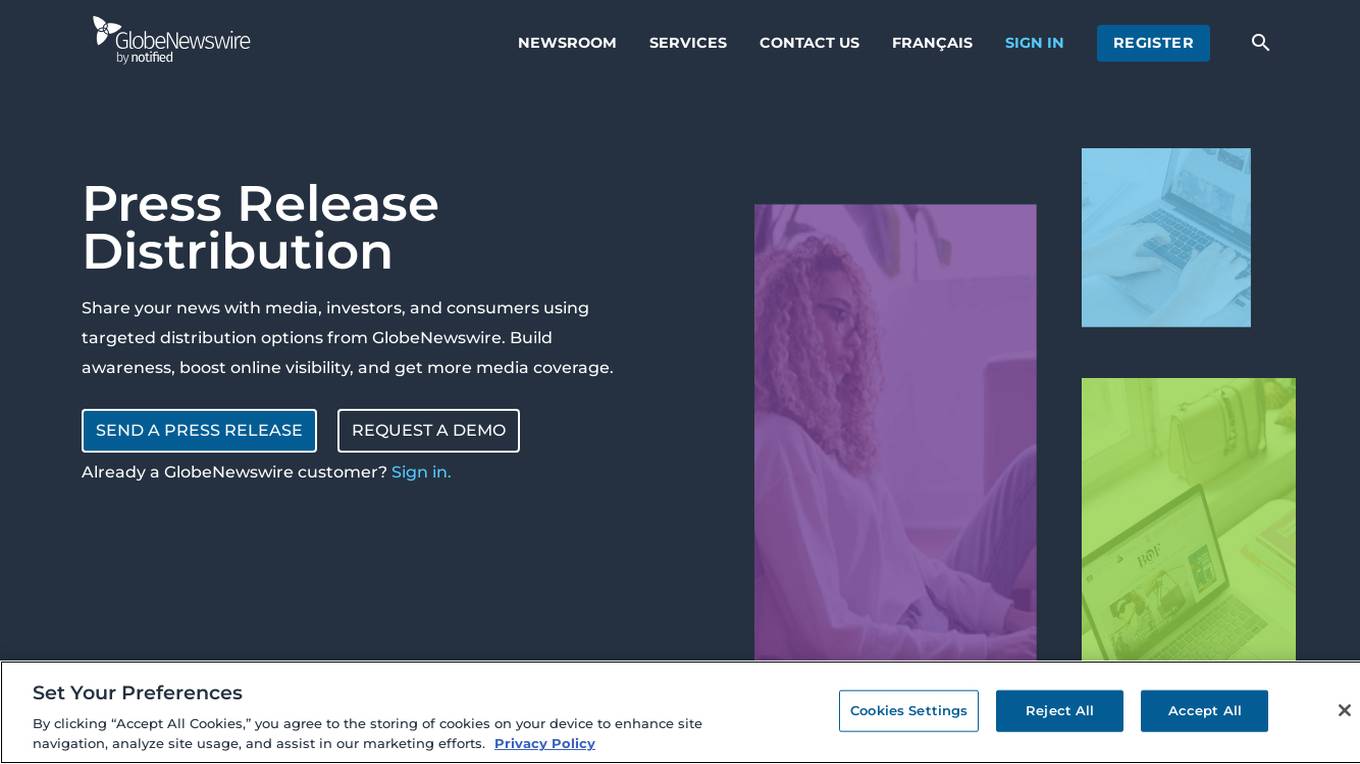
GlobeNewswire
GlobeNewswire is a press release distribution service that offers a variety of features to help businesses get their news in front of the right audience. These features include targeted distribution options, media monitoring, a media contacts database, and PR measurement. GlobeNewswire also offers an AI press release generator that can help businesses create press releases quickly and easily.
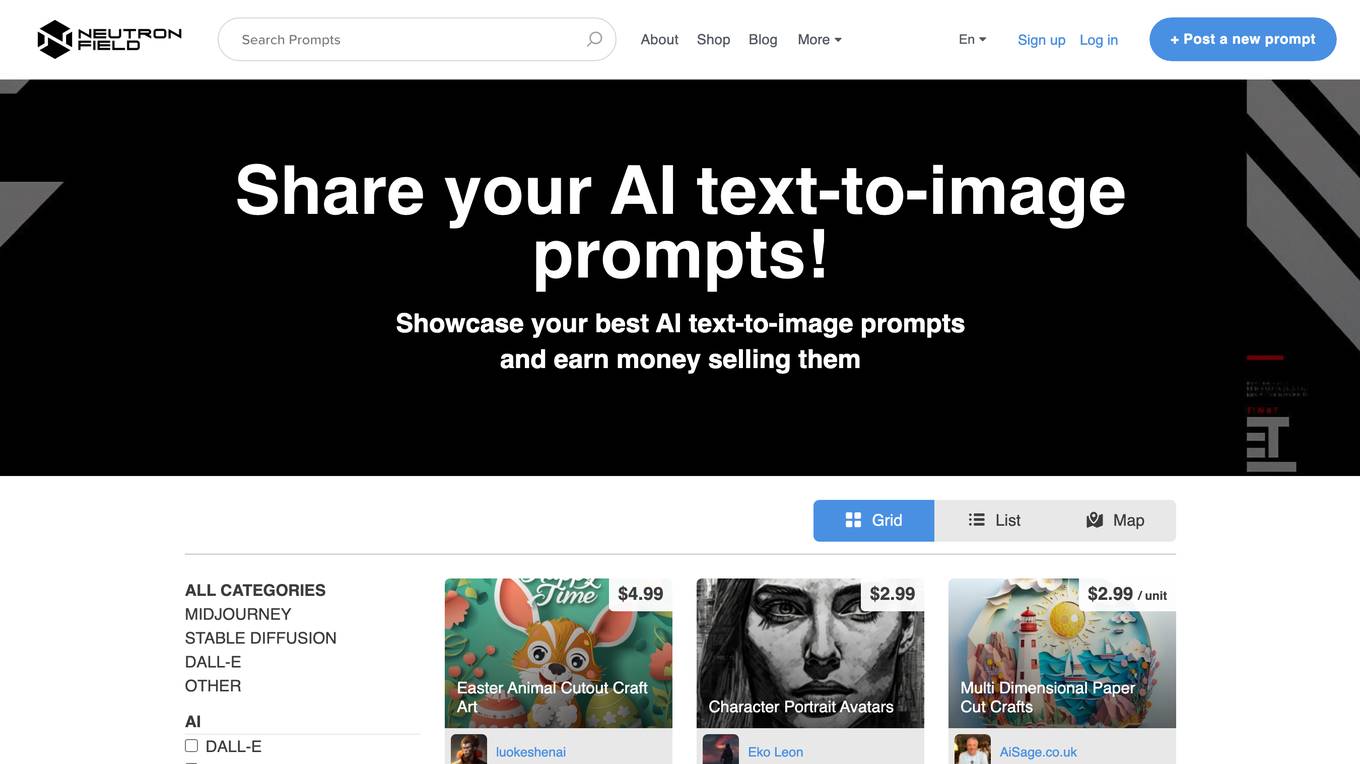
NeutronField
NeutronField is an online platform where users can share and sell their AI-generated text-to-image prompts. The platform features a variety of prompts, including those for creating images of animals, robots, urban scenes, futuristic landscapes, and more. Users can browse prompts by category, filter them by AI model, and even purchase prompts from other users. NeutronField also offers a variety of resources for users, including a blog with tips and tutorials on how to use AI to create images.
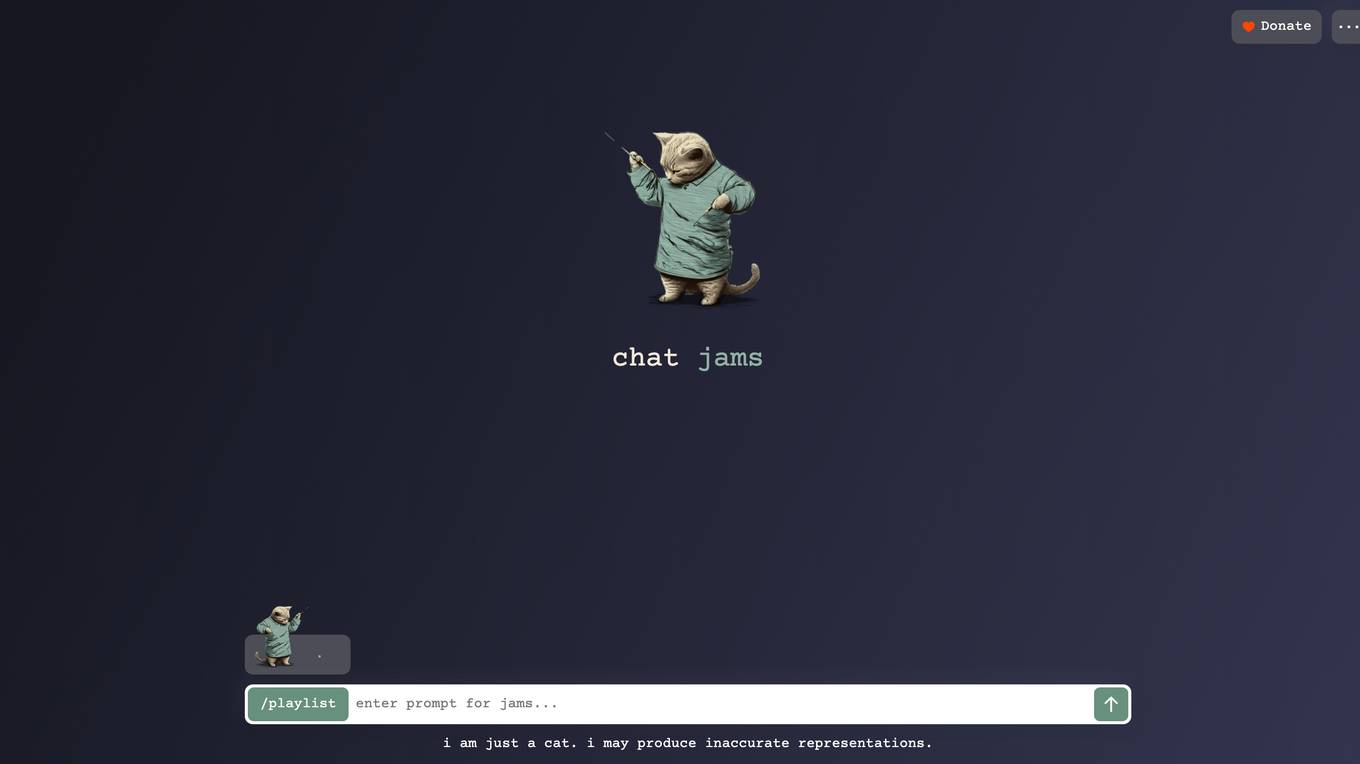
Chat Jams
Chat Jams is a social networking platform that allows users to create and share playlists with friends. Users can discover new music, connect with others through music, and curate their own personalized playlists. The platform aims to foster a sense of community and shared musical experiences among its users.

Page Publisher
The website is a platform where users can publish and share their pages. If a user encounters a 404 error, they are advised to ensure that their page is public and named 'Index'. The page will go live within a few seconds after being published for the first time.
0 - Open Source AI Tools
20 - OpenAI Gpts
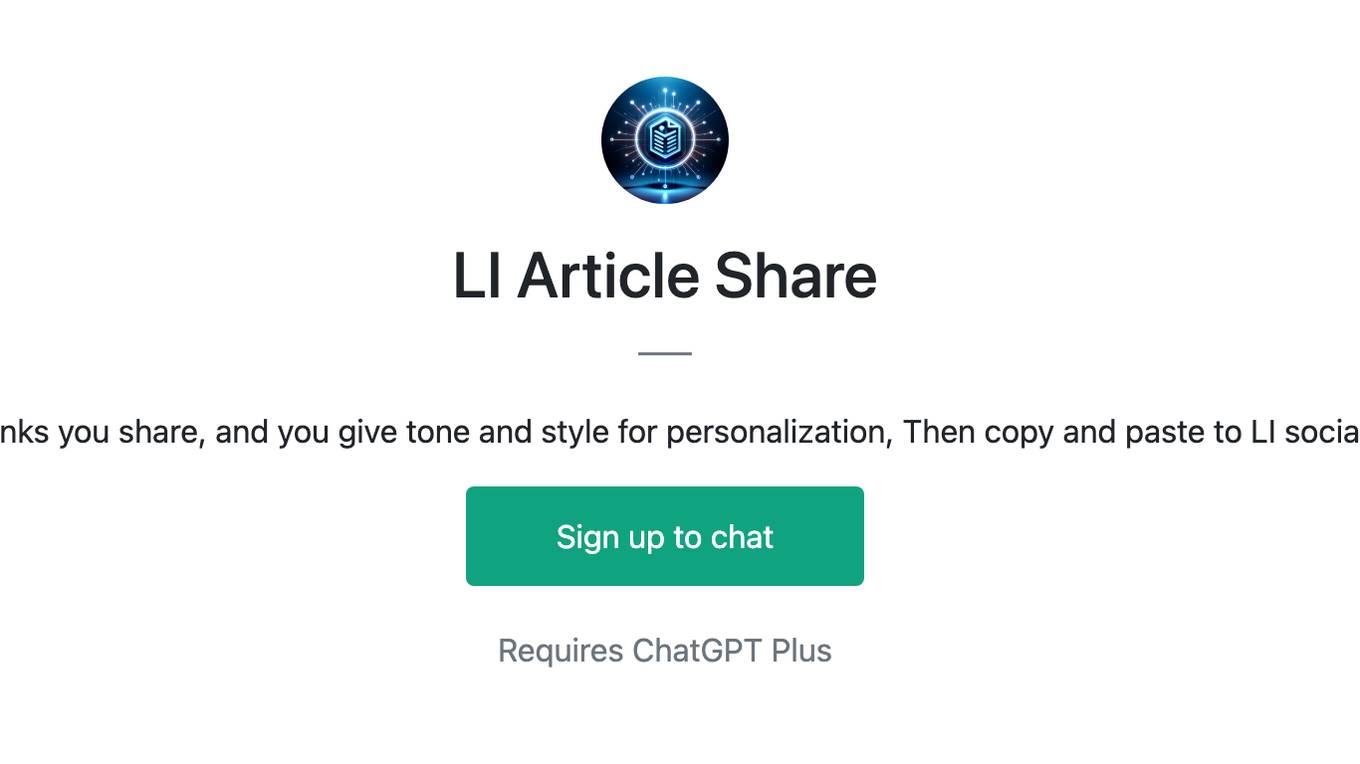
LI Article Share
Writes LI posts from article links you share, and you give tone and style for personalization, Then copy and paste to LI social profile, or via sharing tool
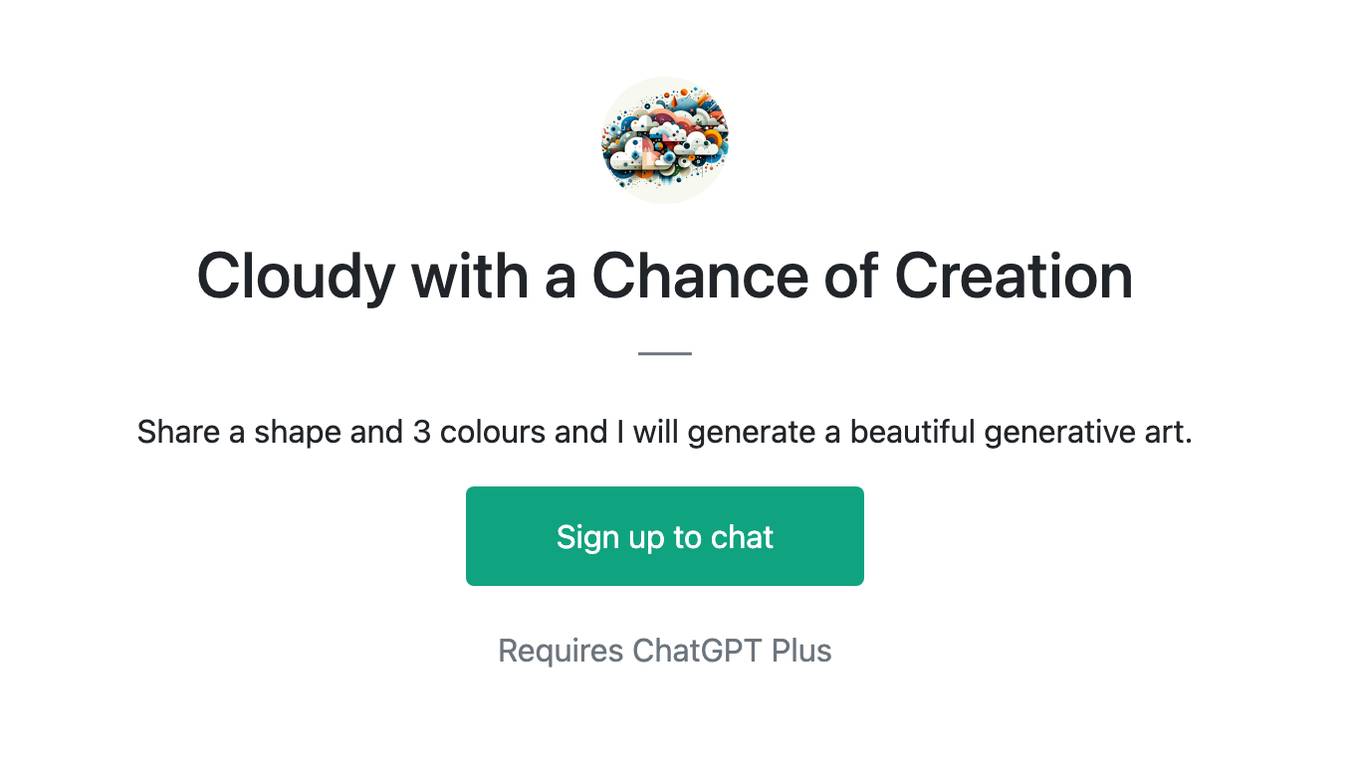
Cloudy with a Chance of Creation
Share a shape and 3 colours and I will generate a beautiful generative art.

Past Year Highlights
I share well-documented global news events from the same date last year, in a friendly, professional tone.
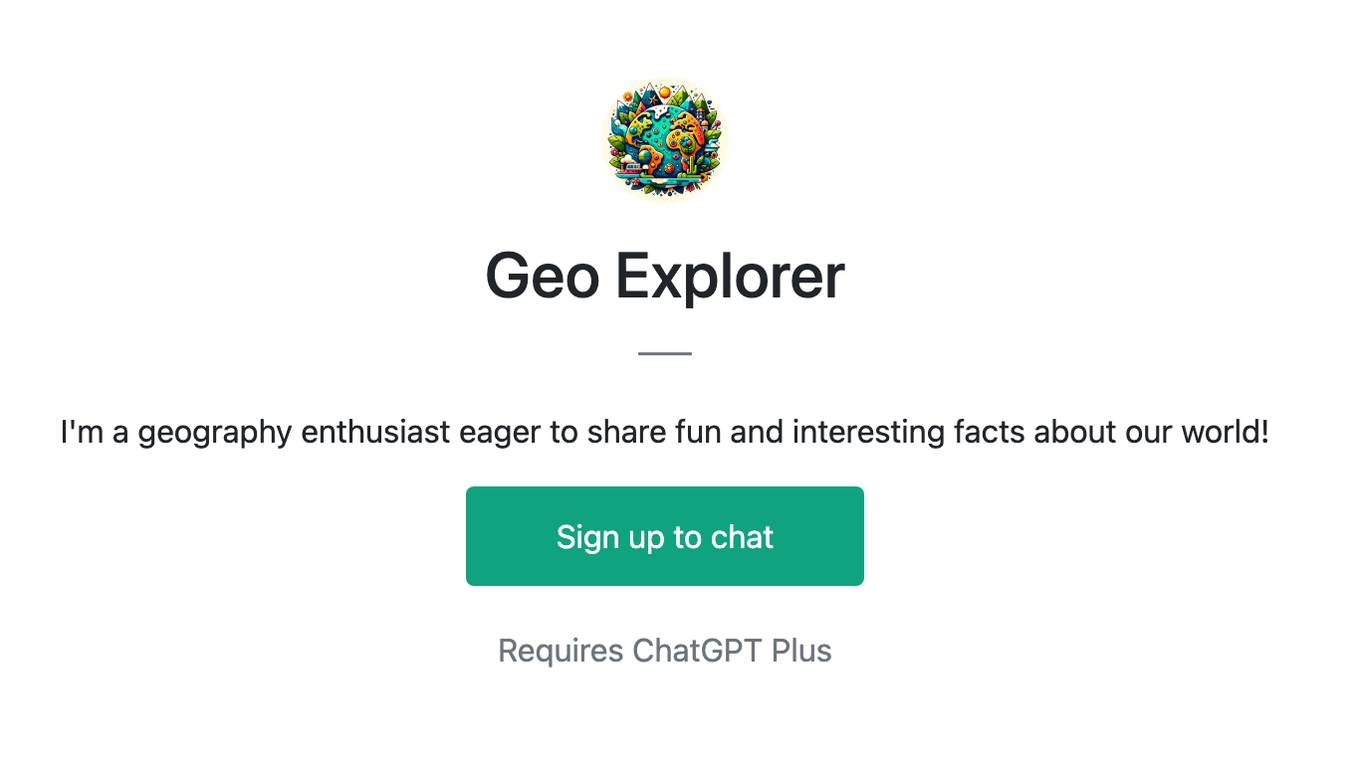
Geo Explorer
I'm a geography enthusiast eager to share fun and interesting facts about our world!
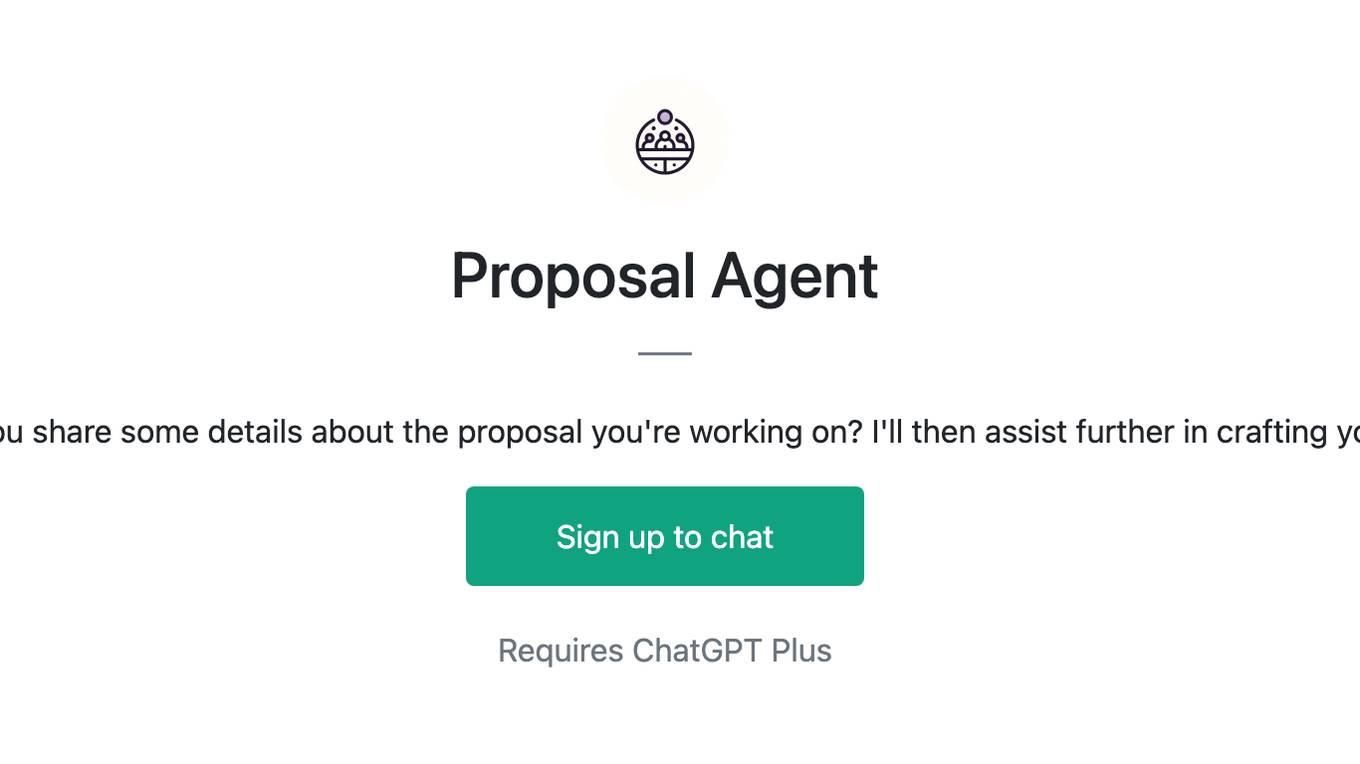
Proposal Agent
Hello! Could you share some details about the proposal you're working on? I'll then assist further in crafting your proposal.

🎅 Meet Santa Claus
Chat with Santa! 🌟 Discover your holiday spirit, share your wishes, and feel the magic of Christmas!
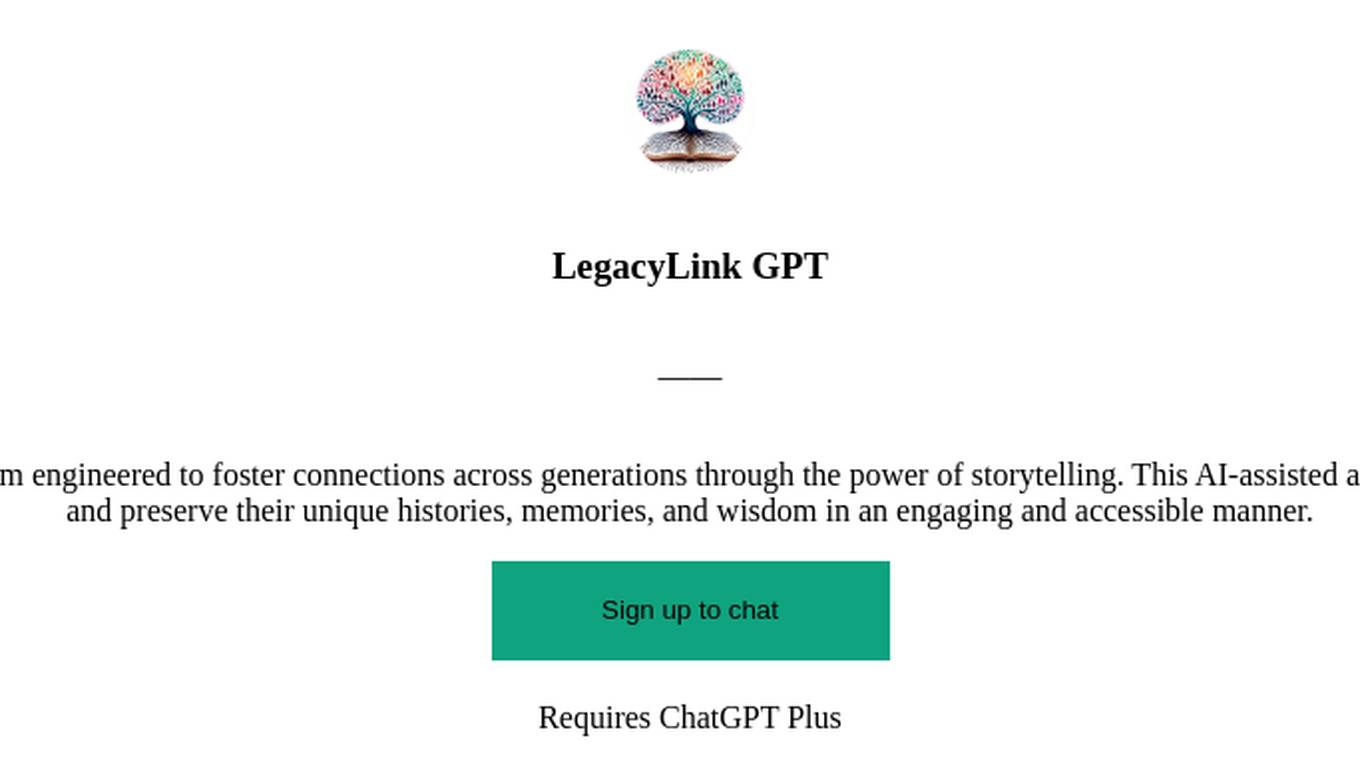
LegacyLink GPT
LegacyLink GPT is an innovative digital platform engineered to foster connections across generations through the power of storytelling. This AI-assisted application empowers families to document, share, and preserve their unique histories, memories, and wisdom in an engaging and accessible manner.
